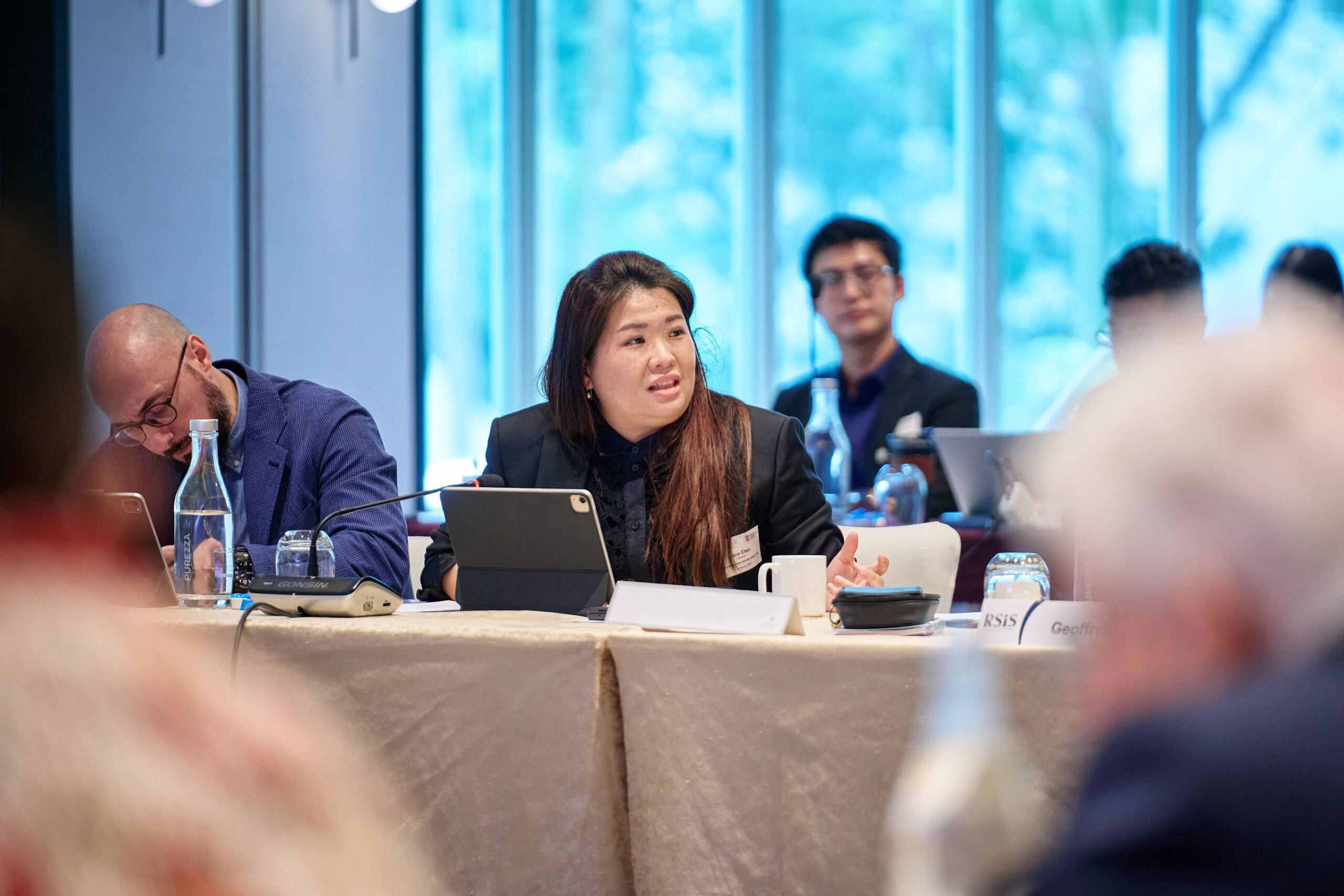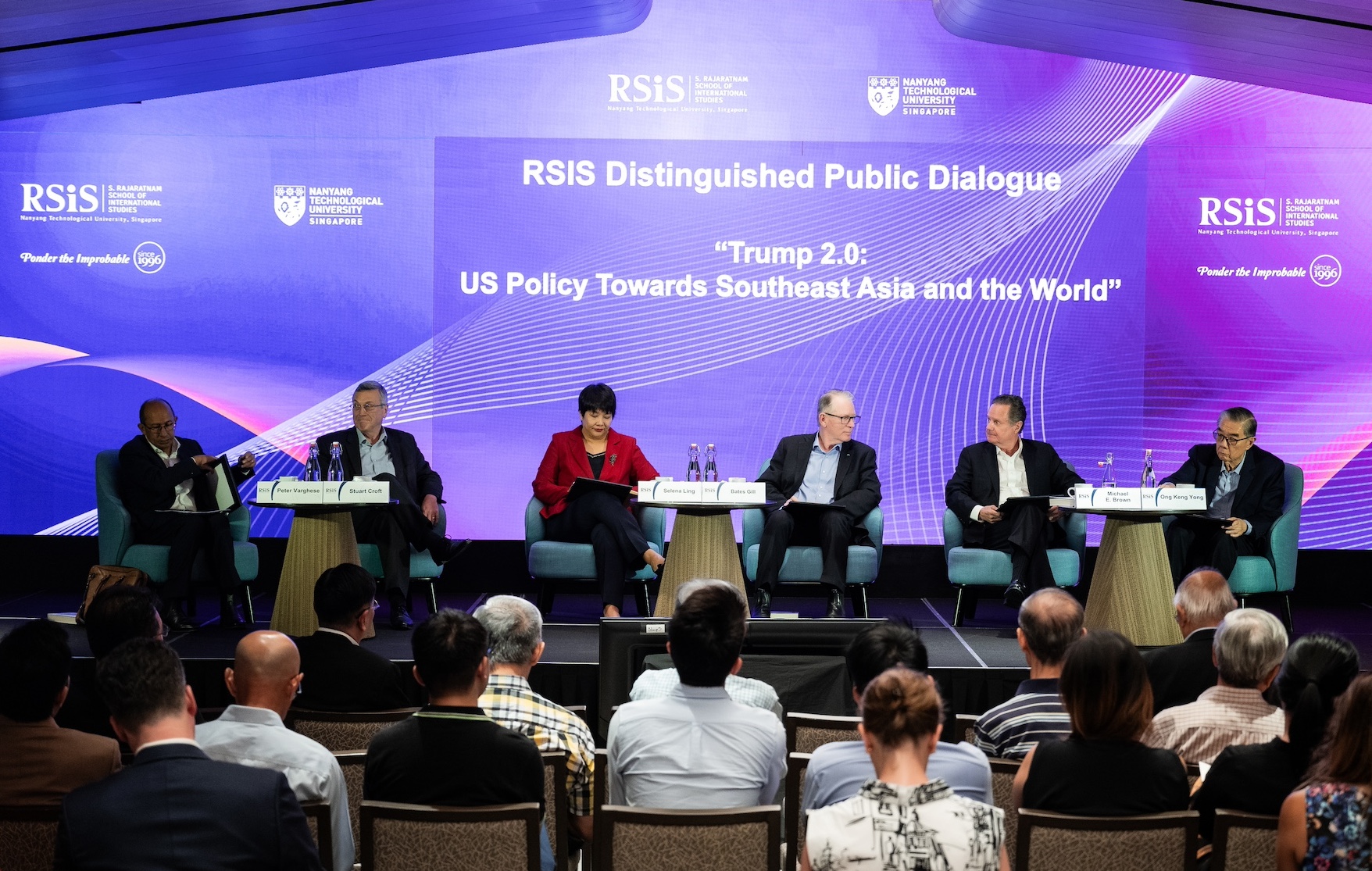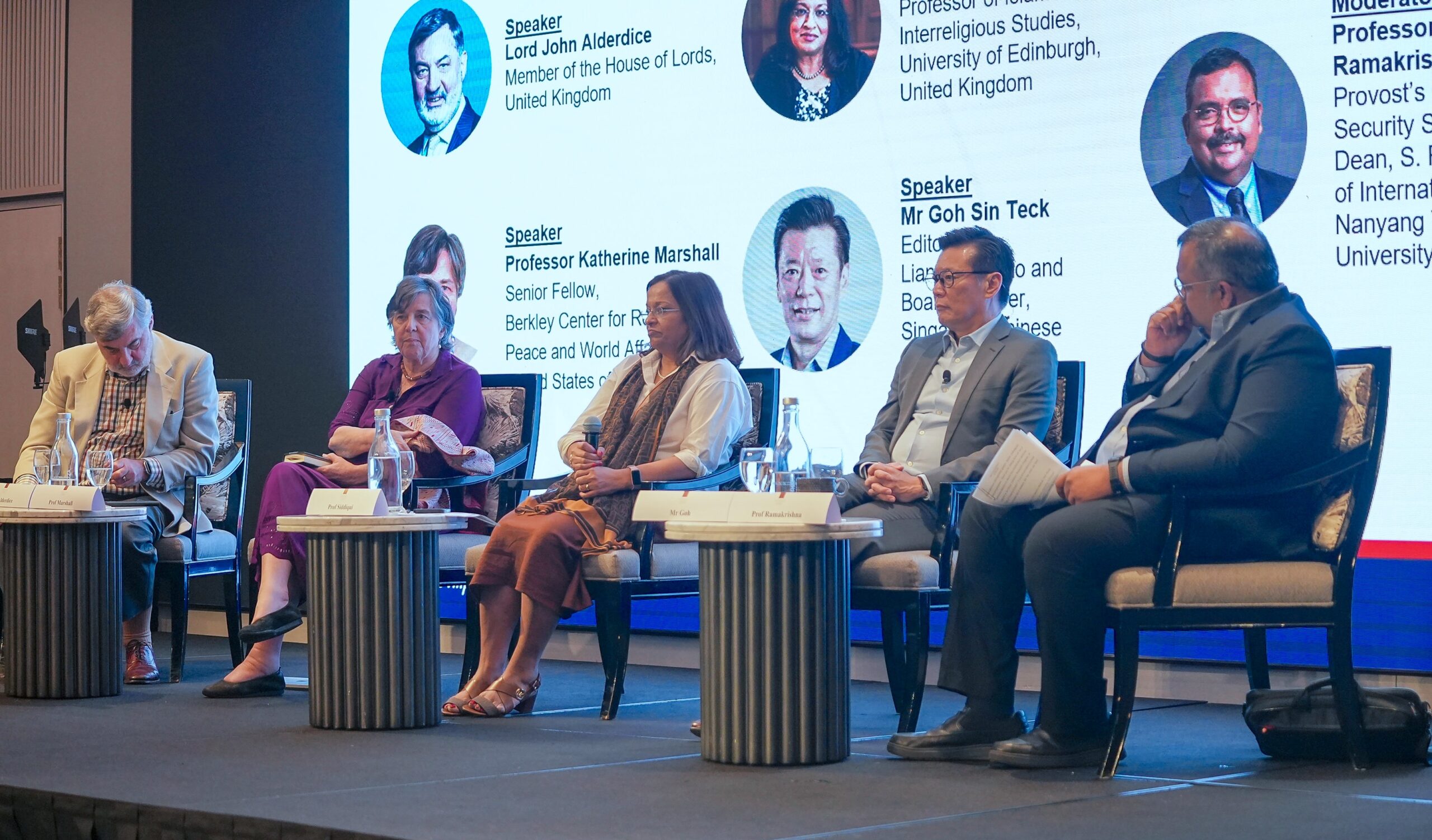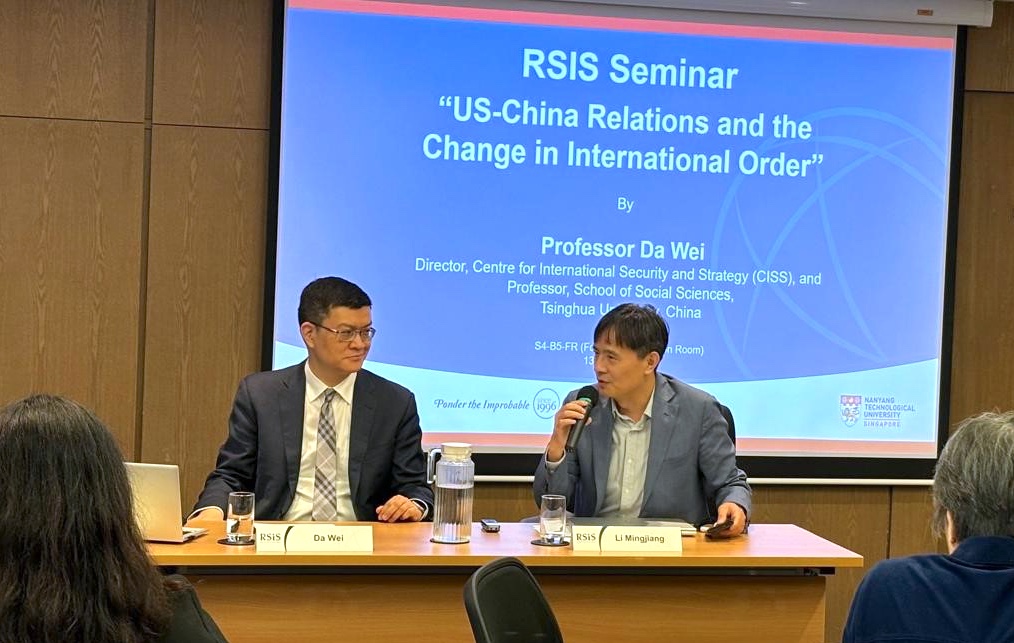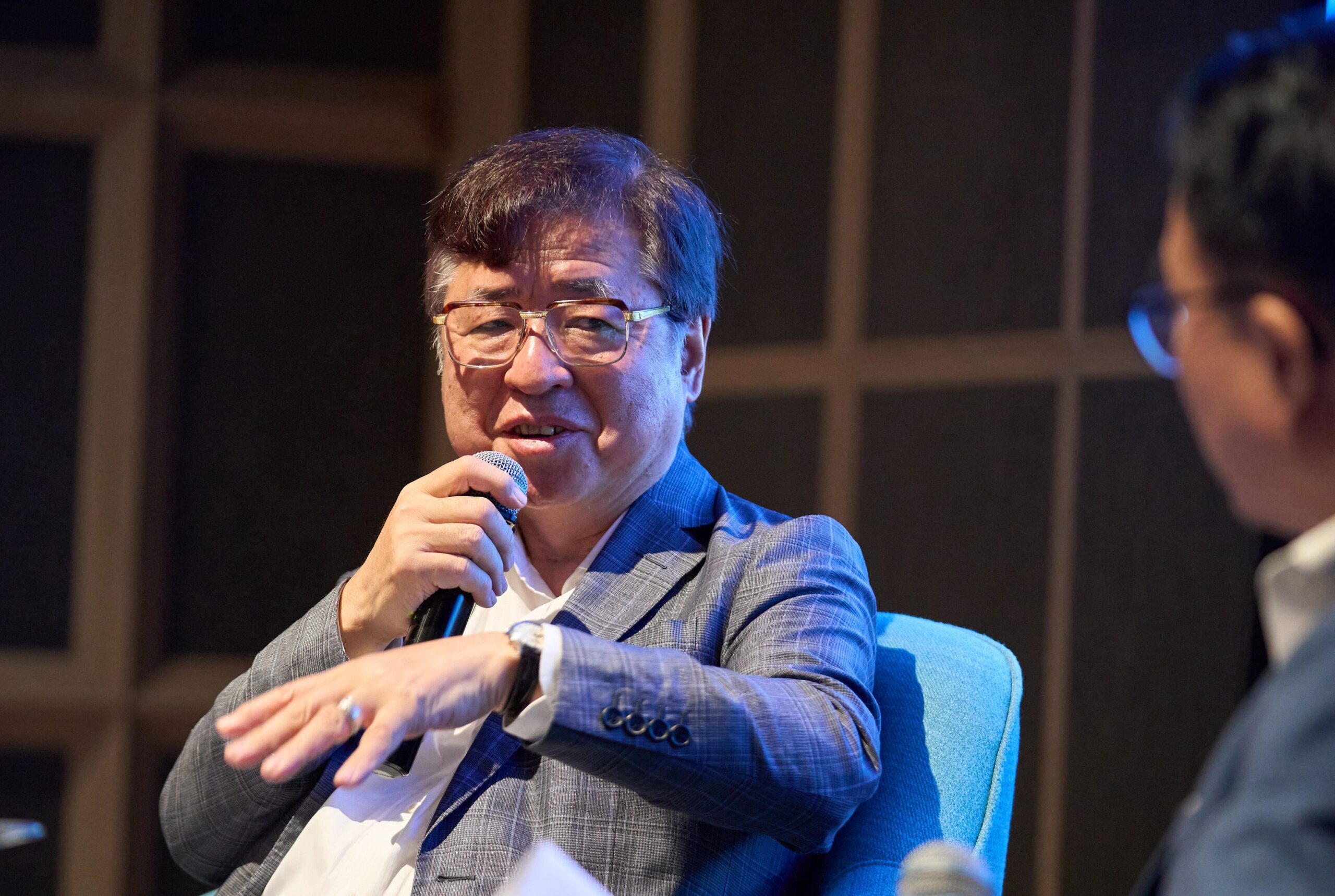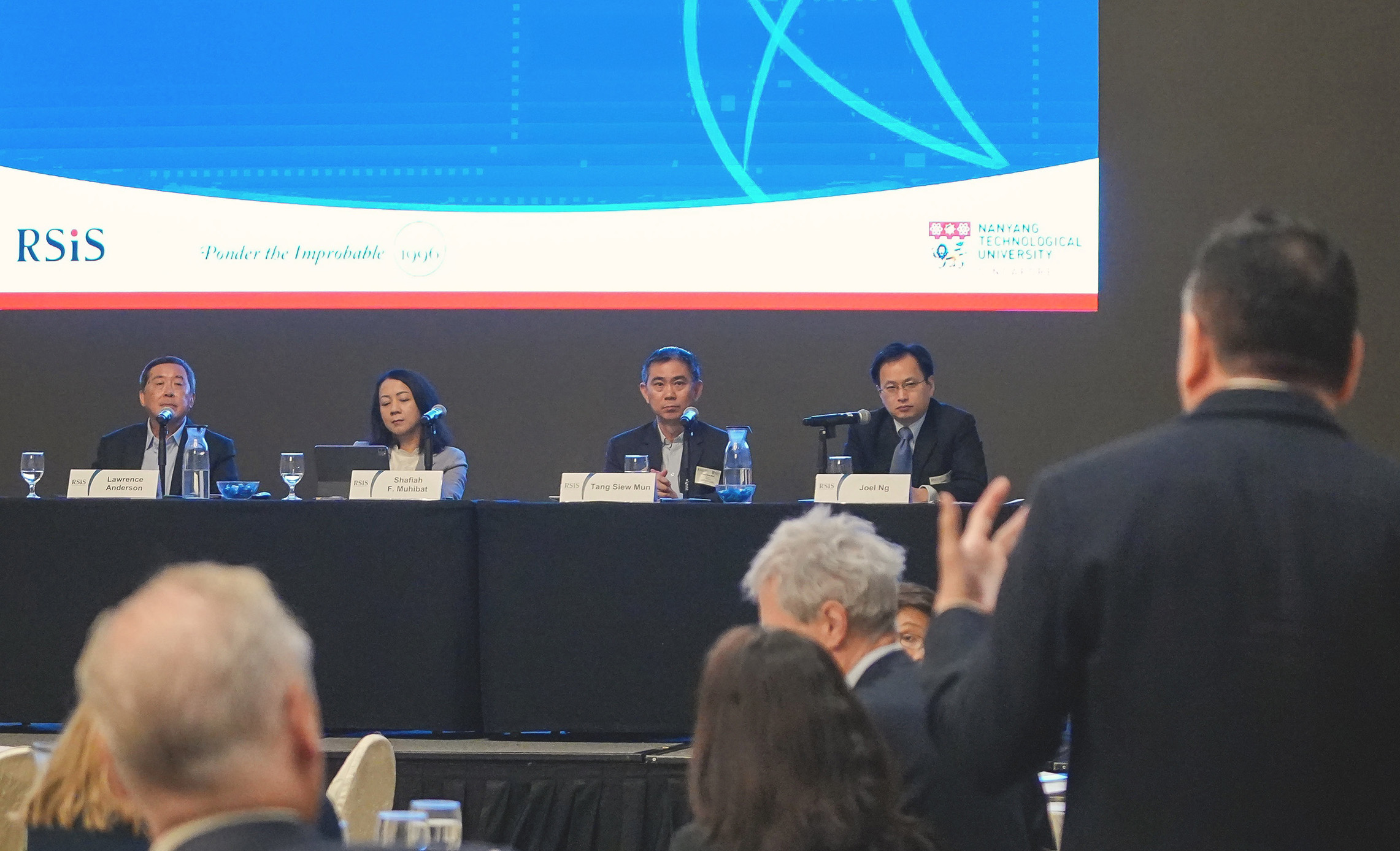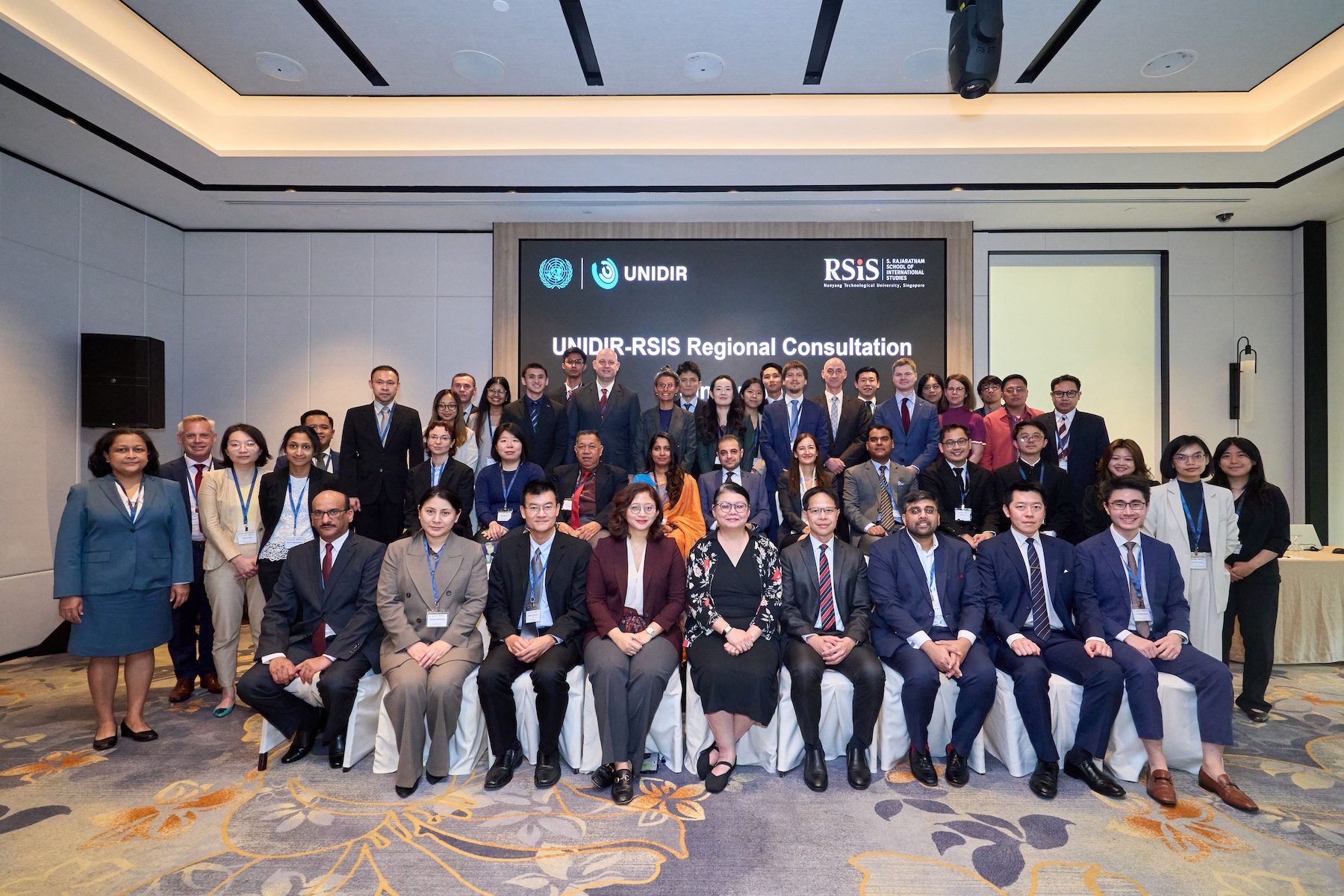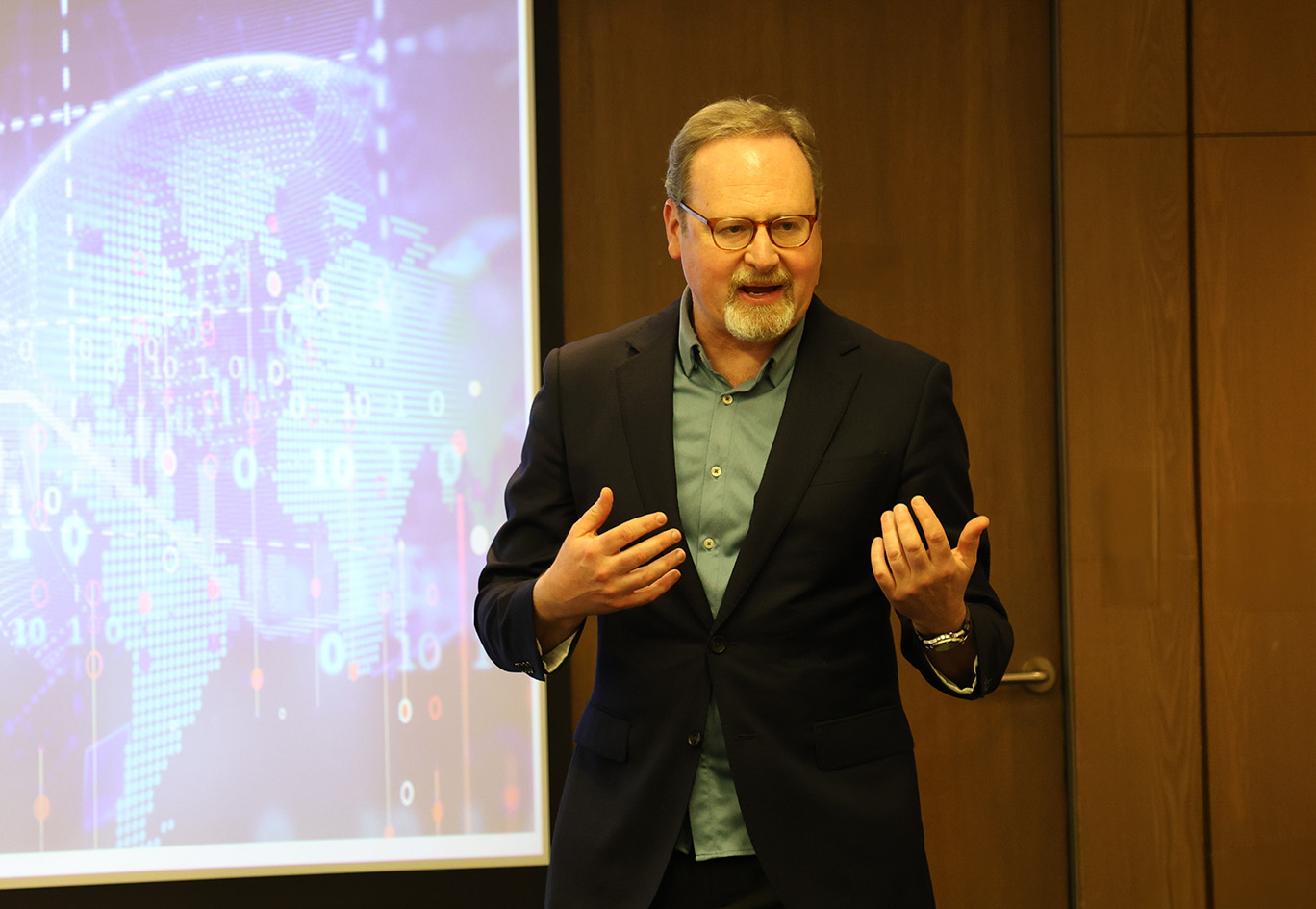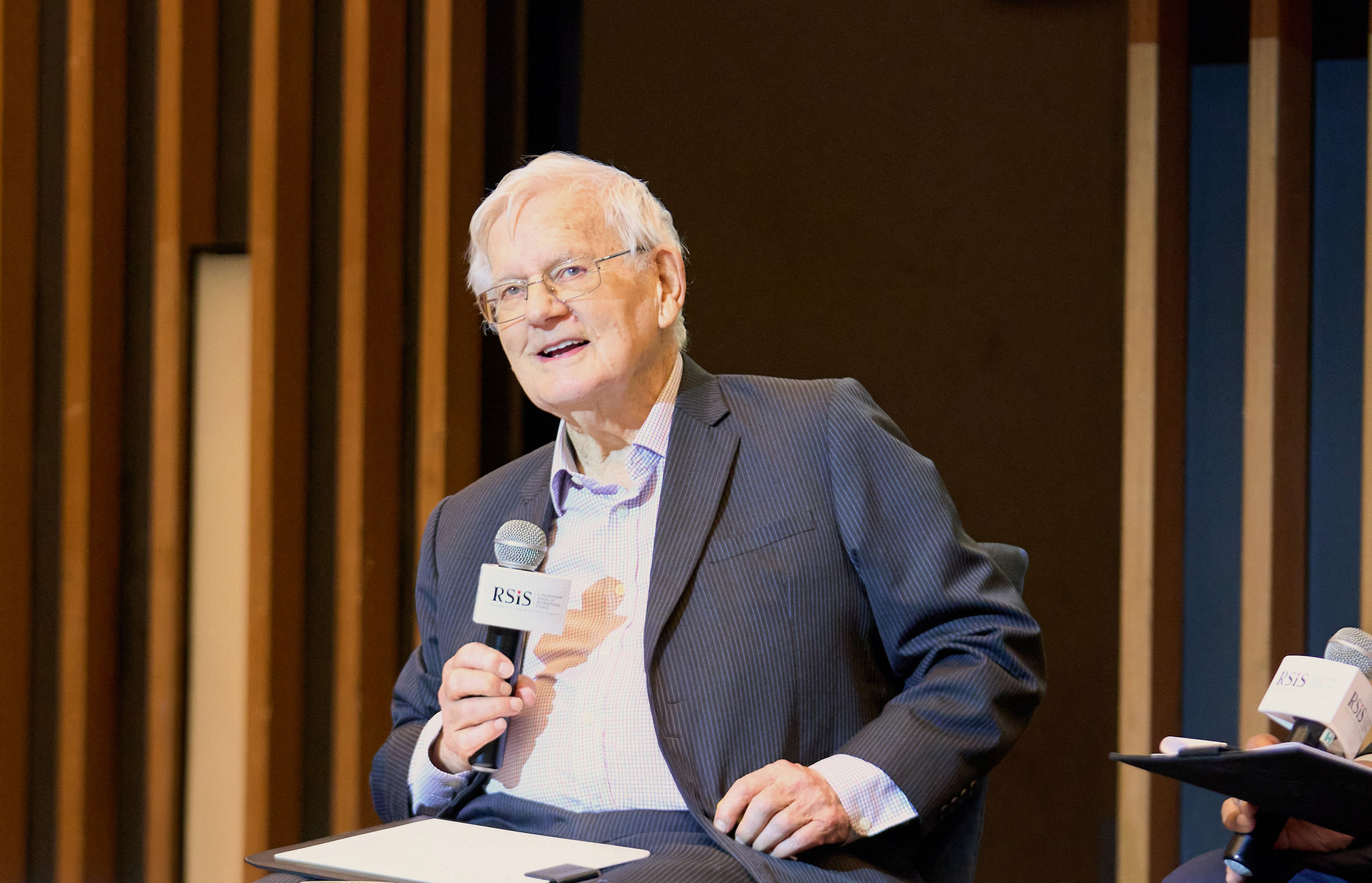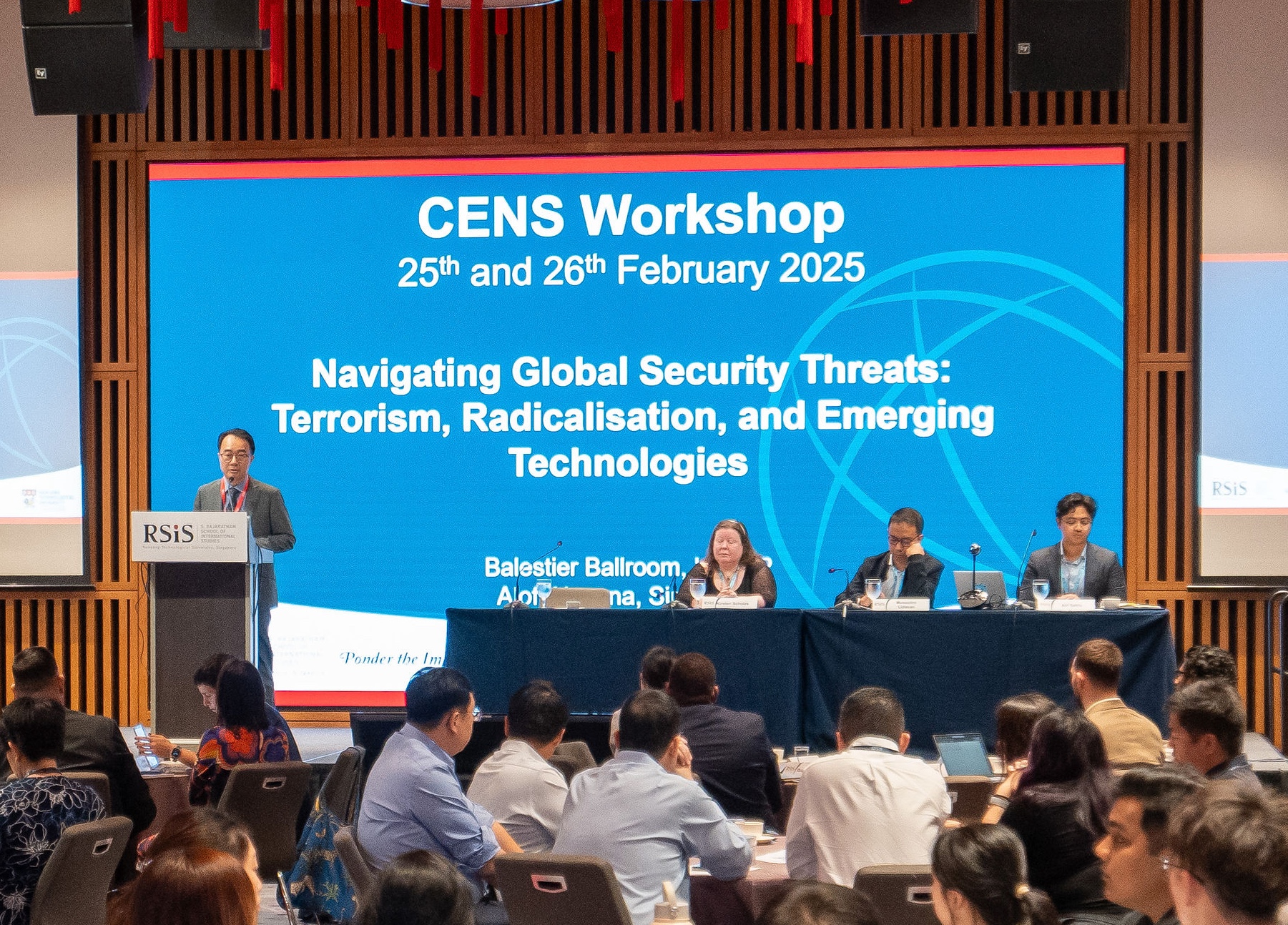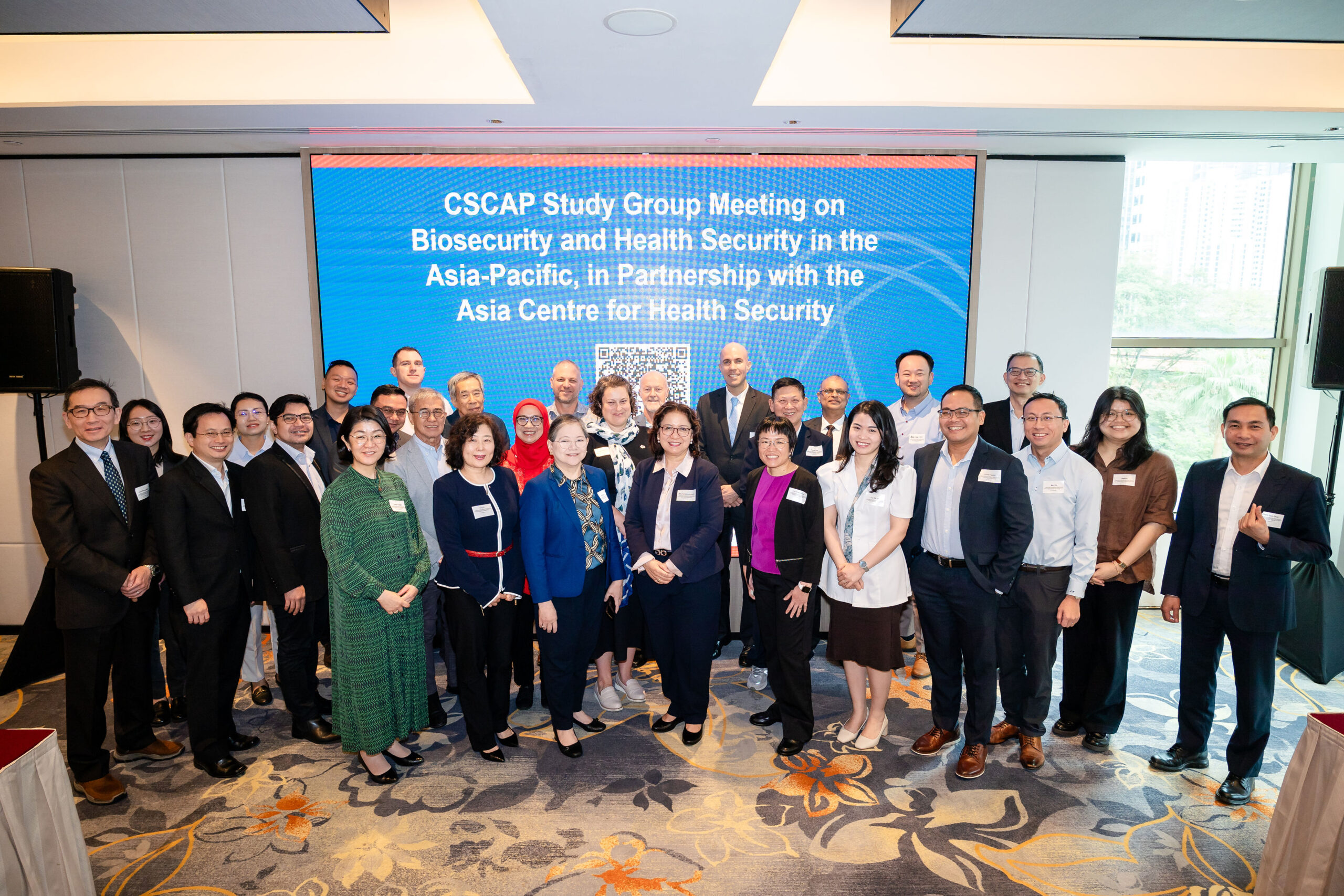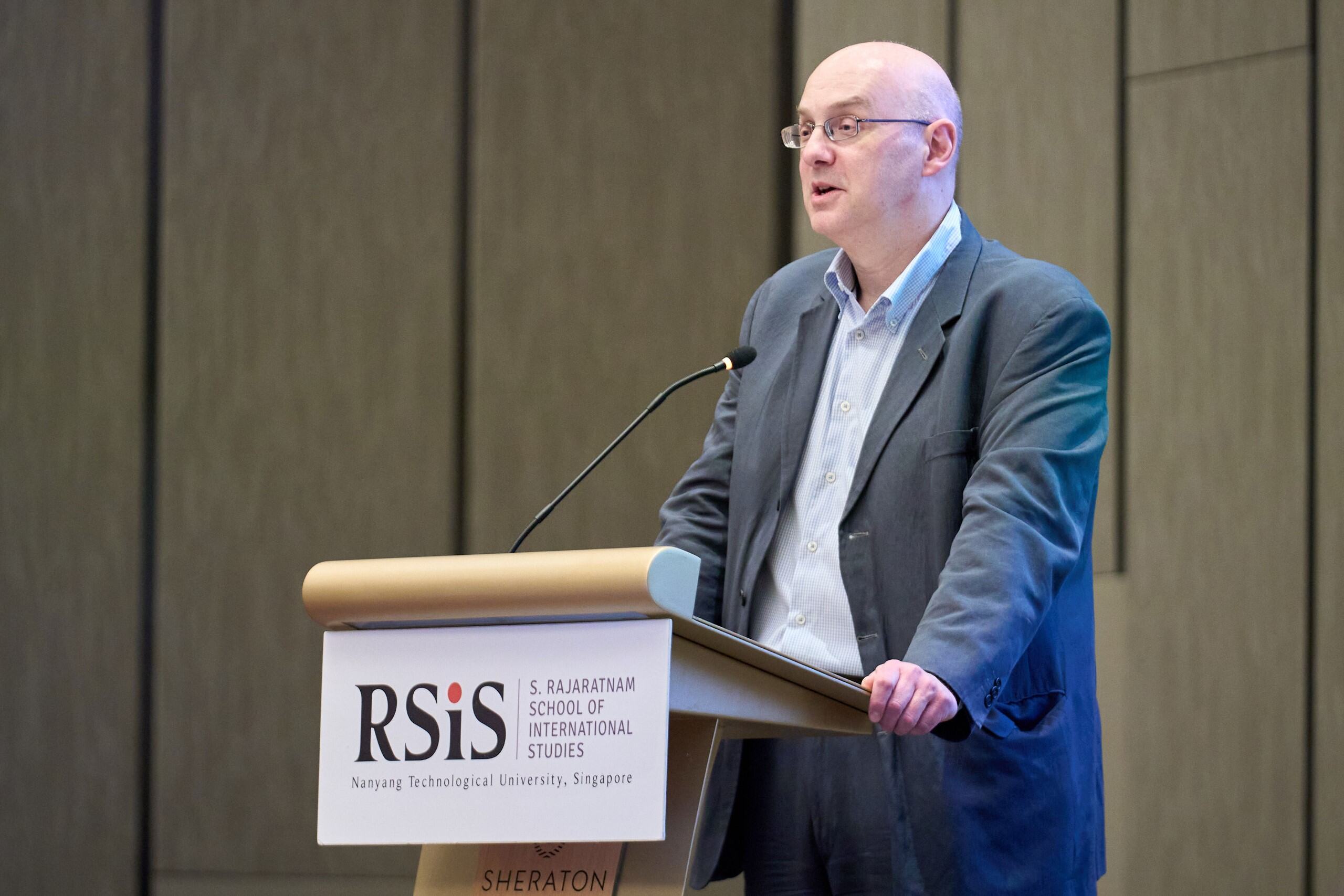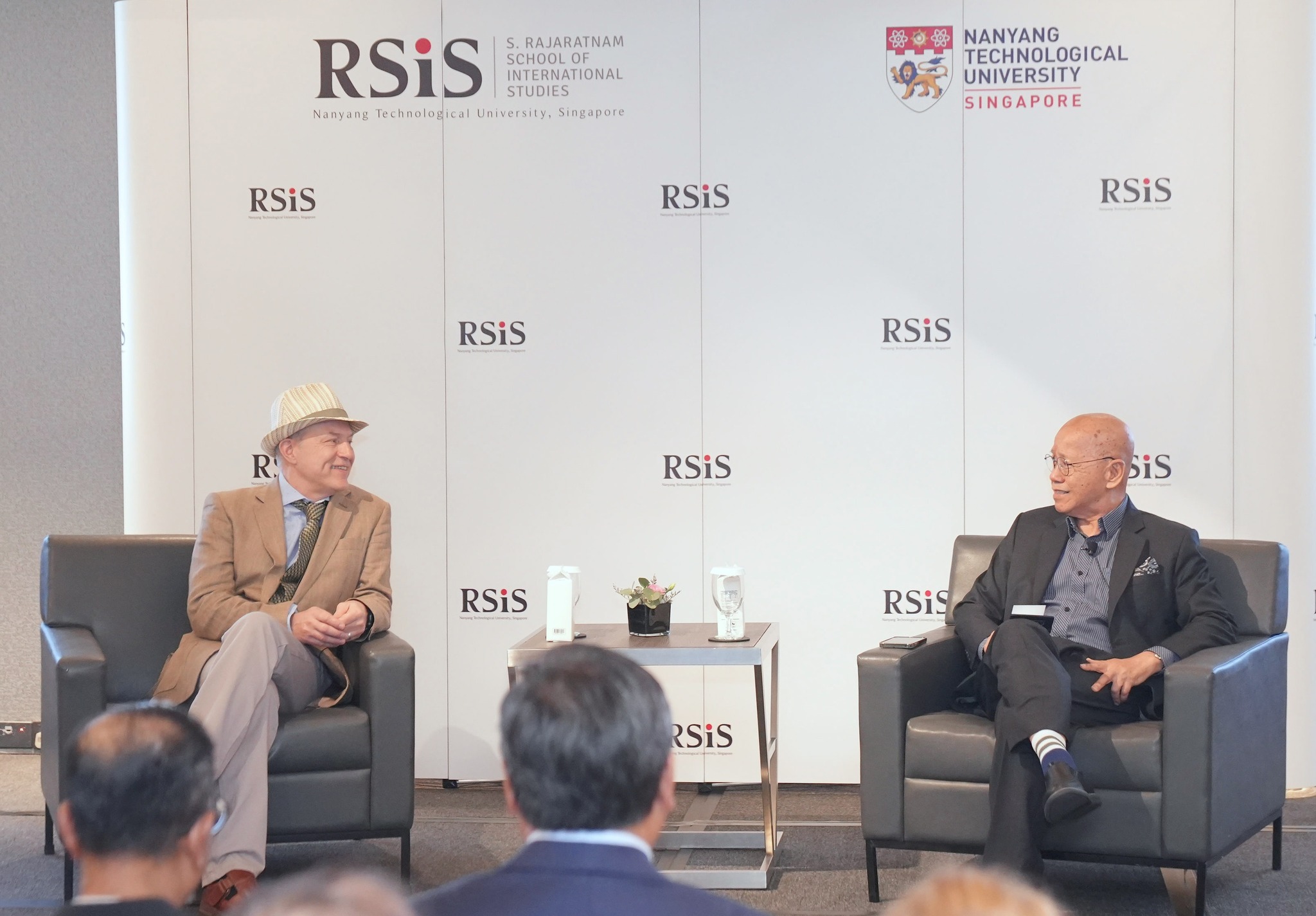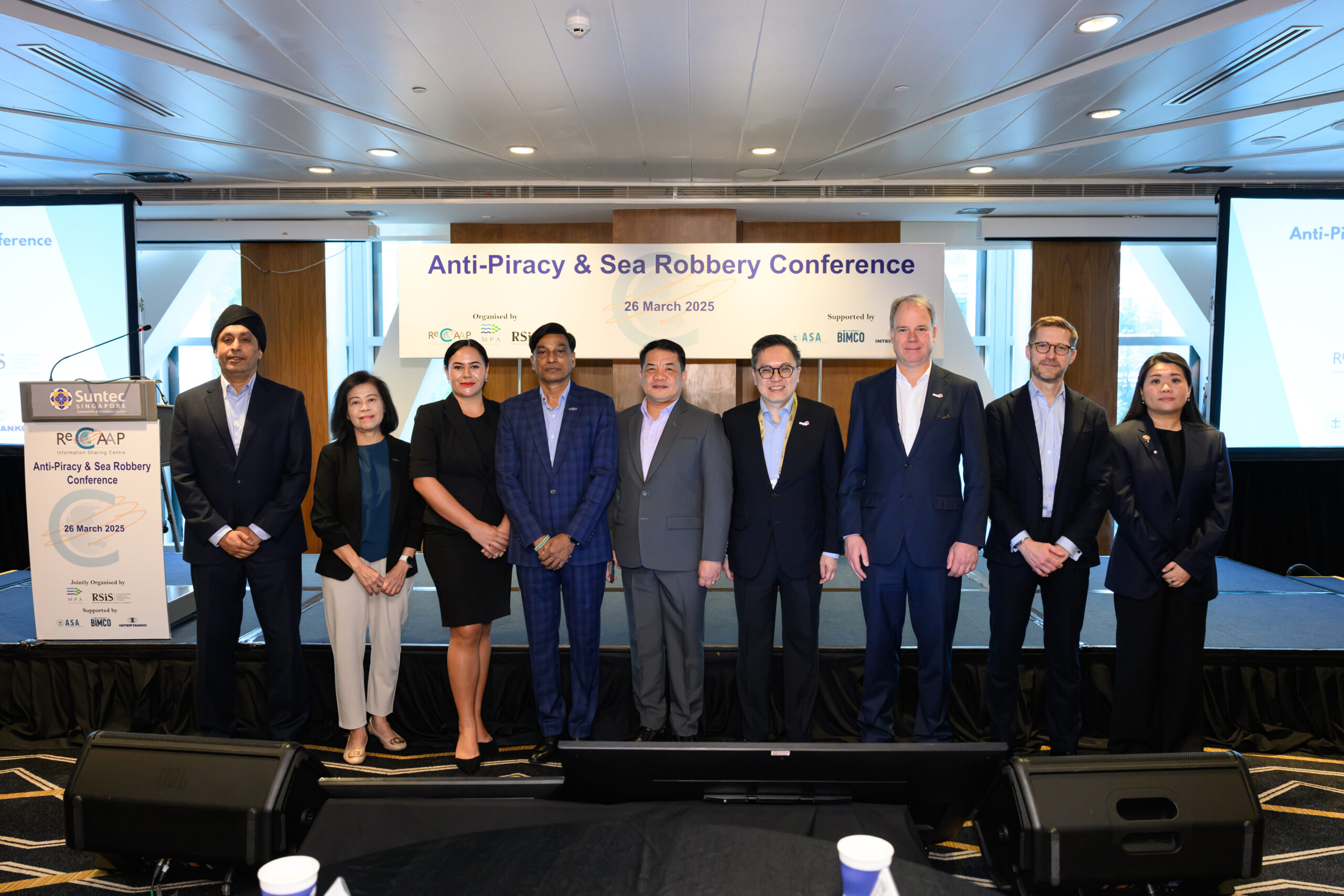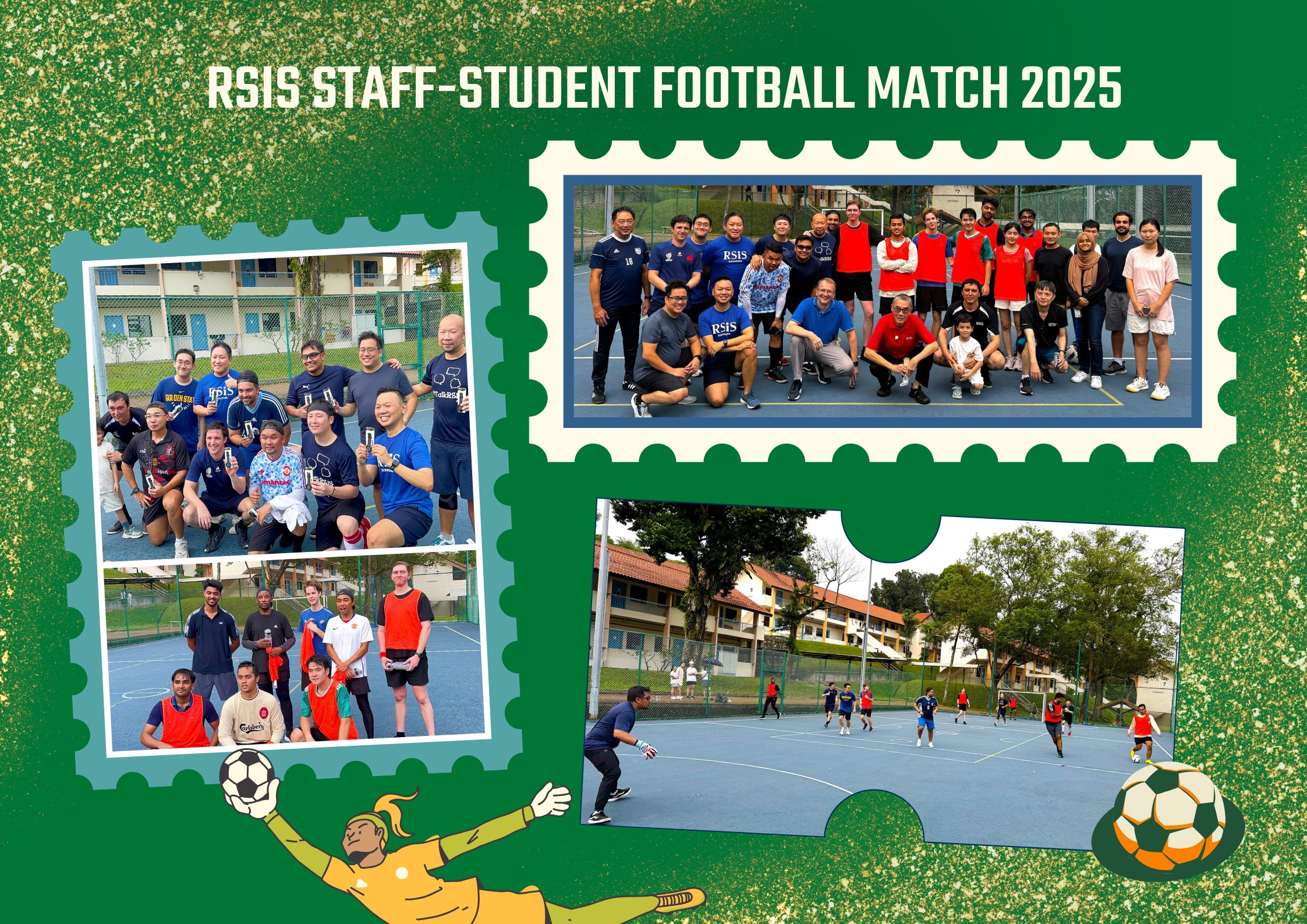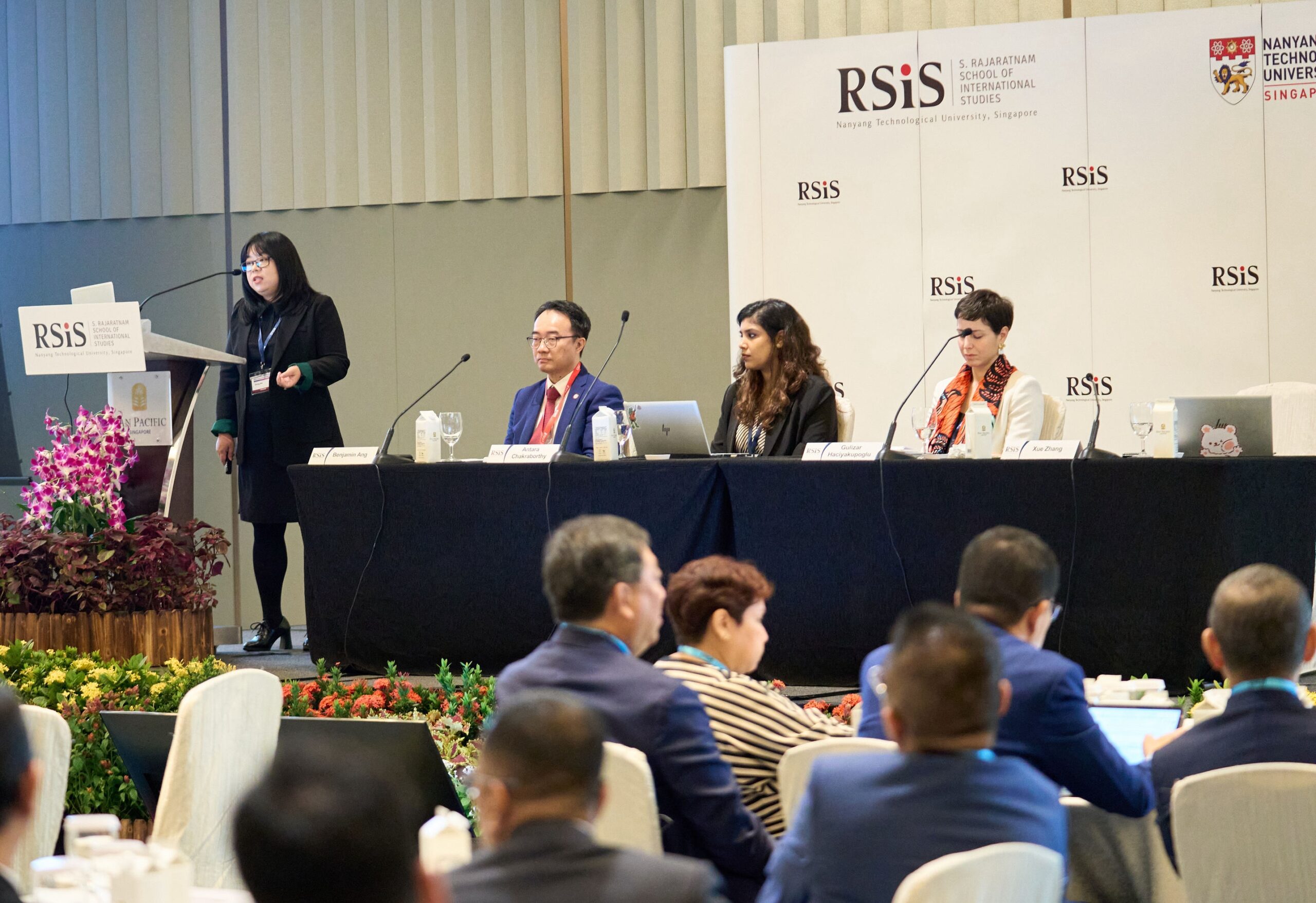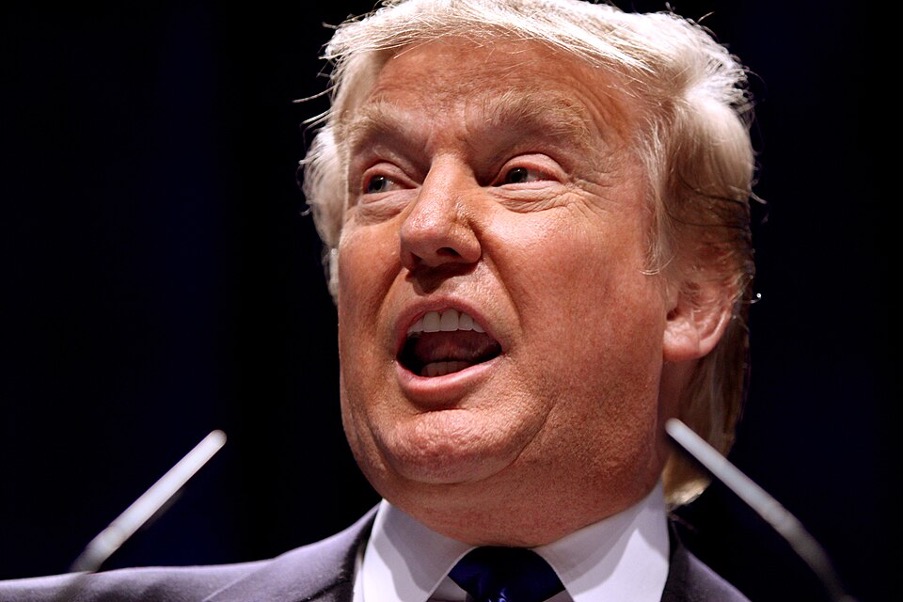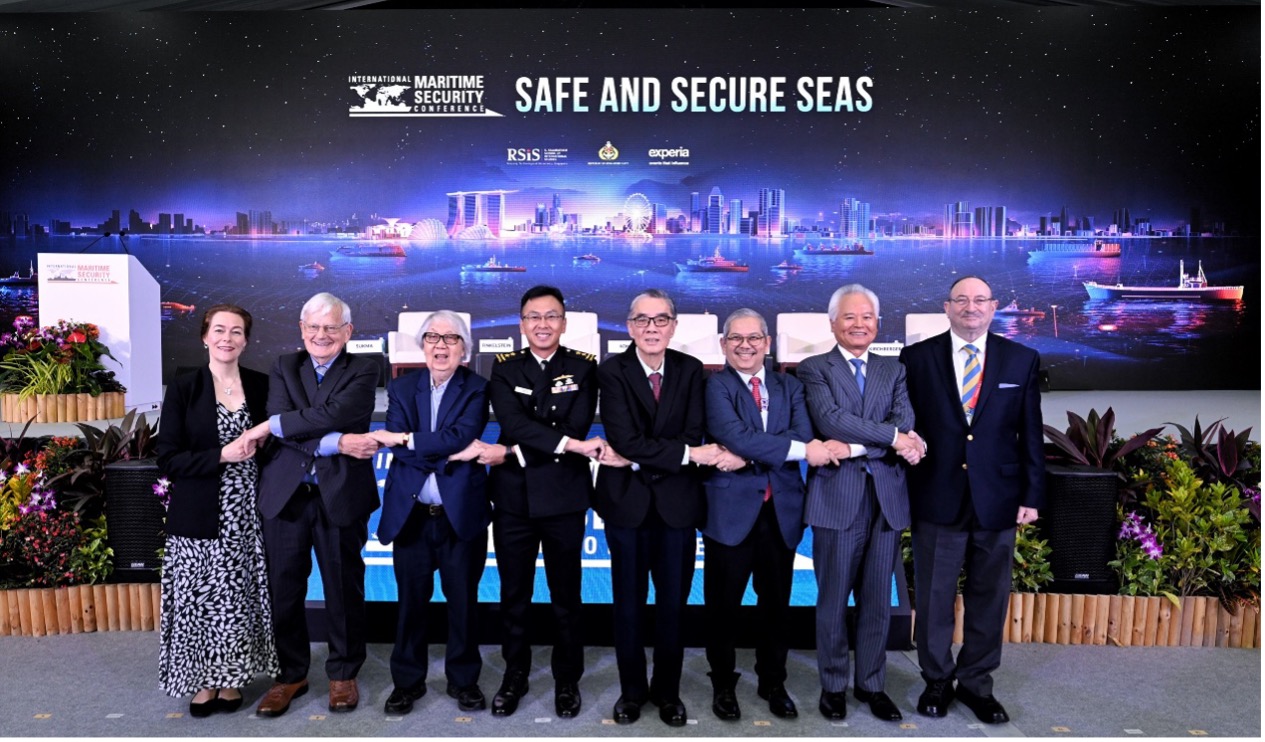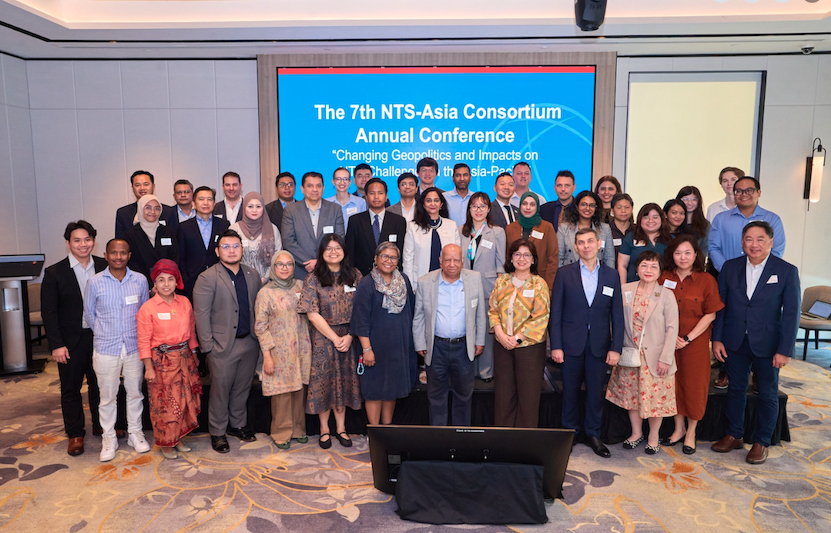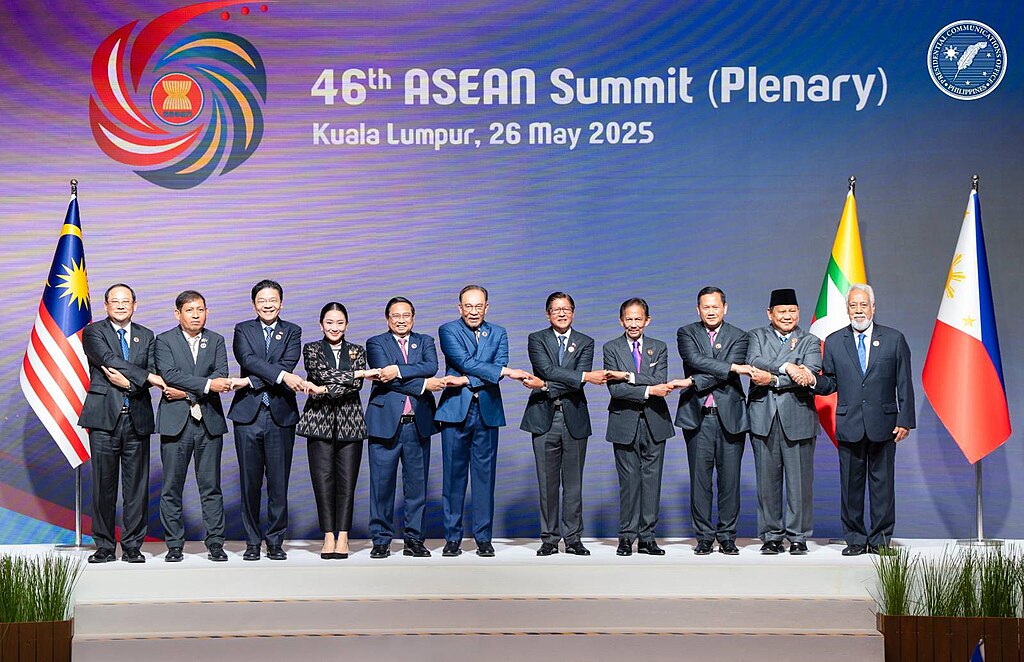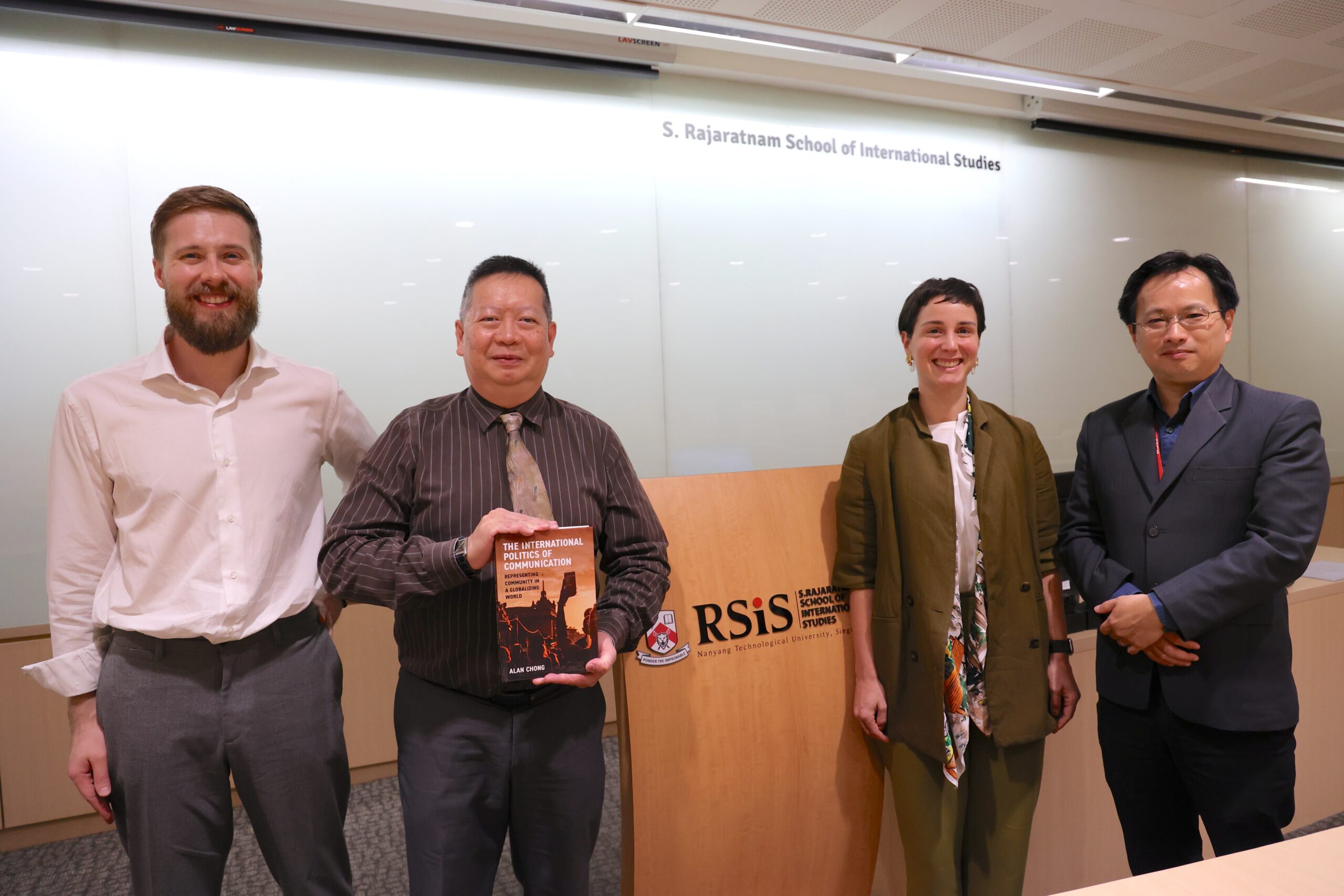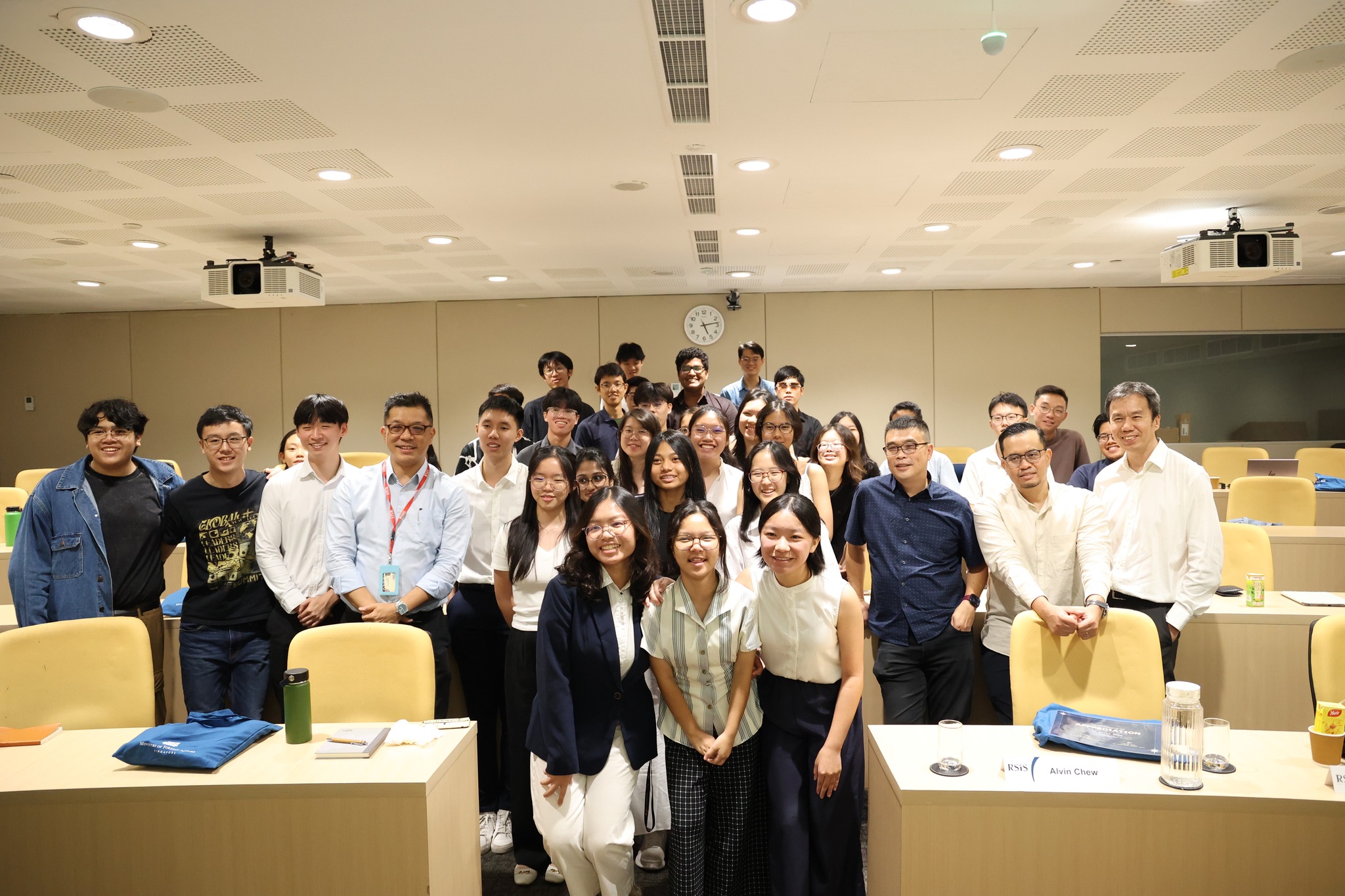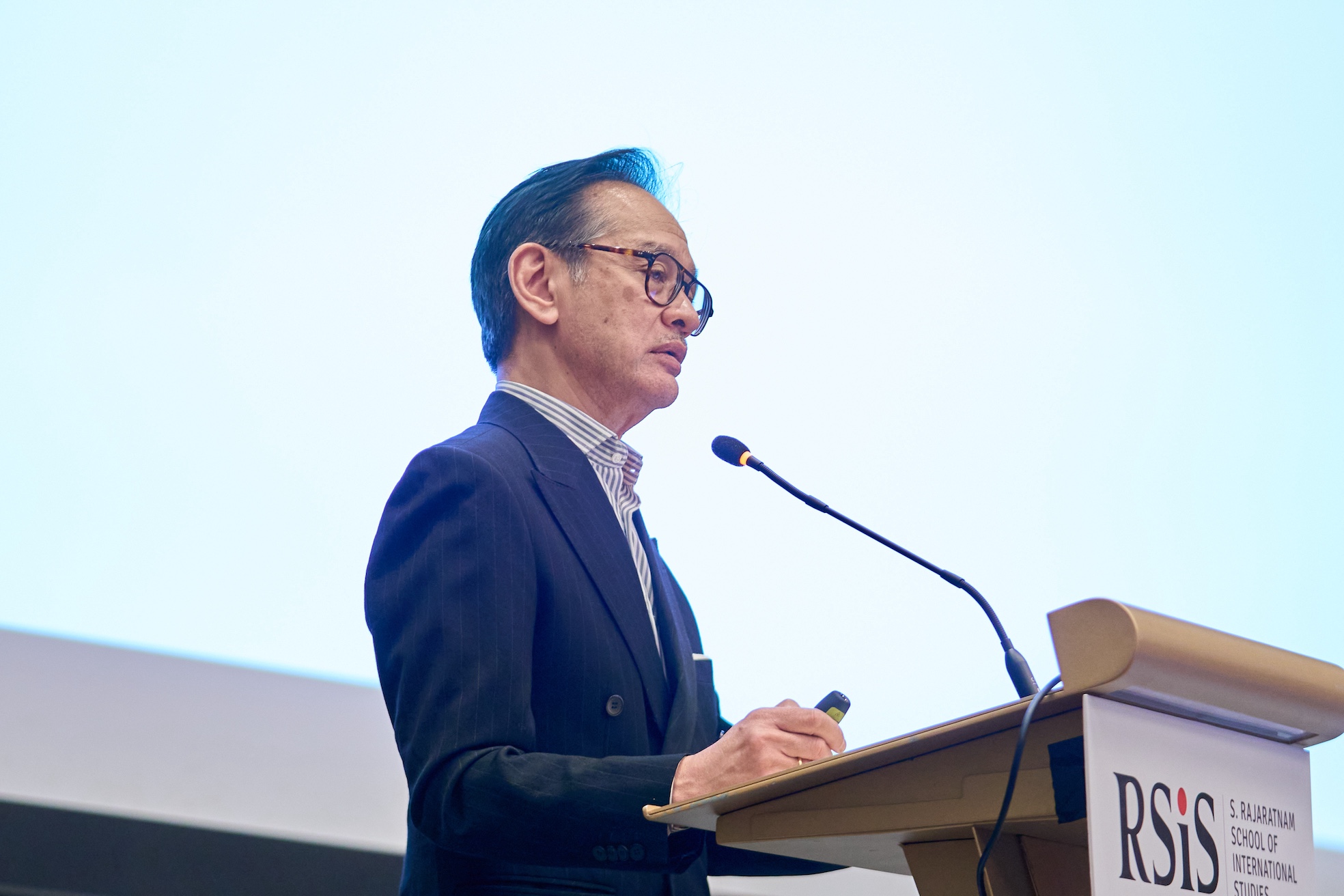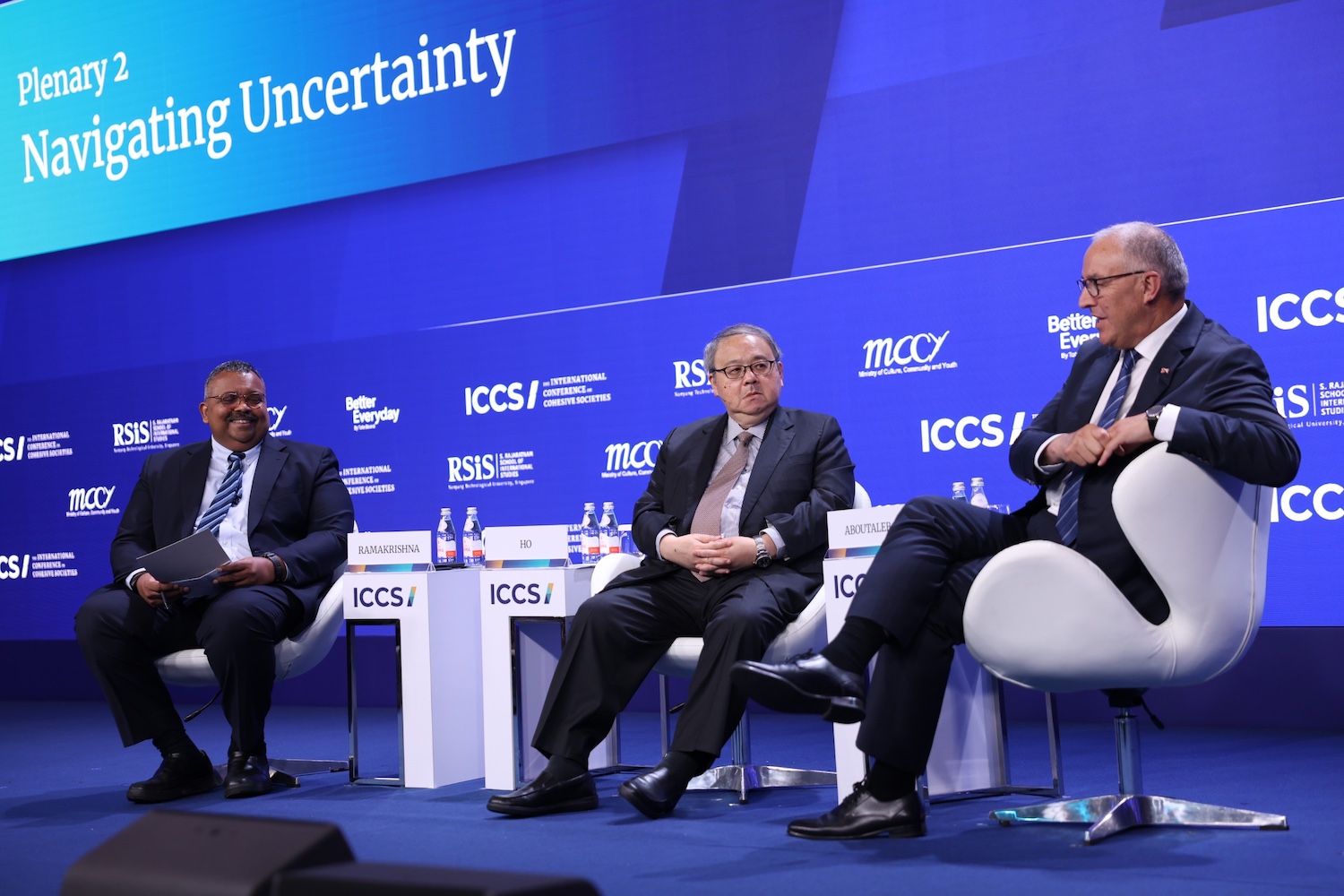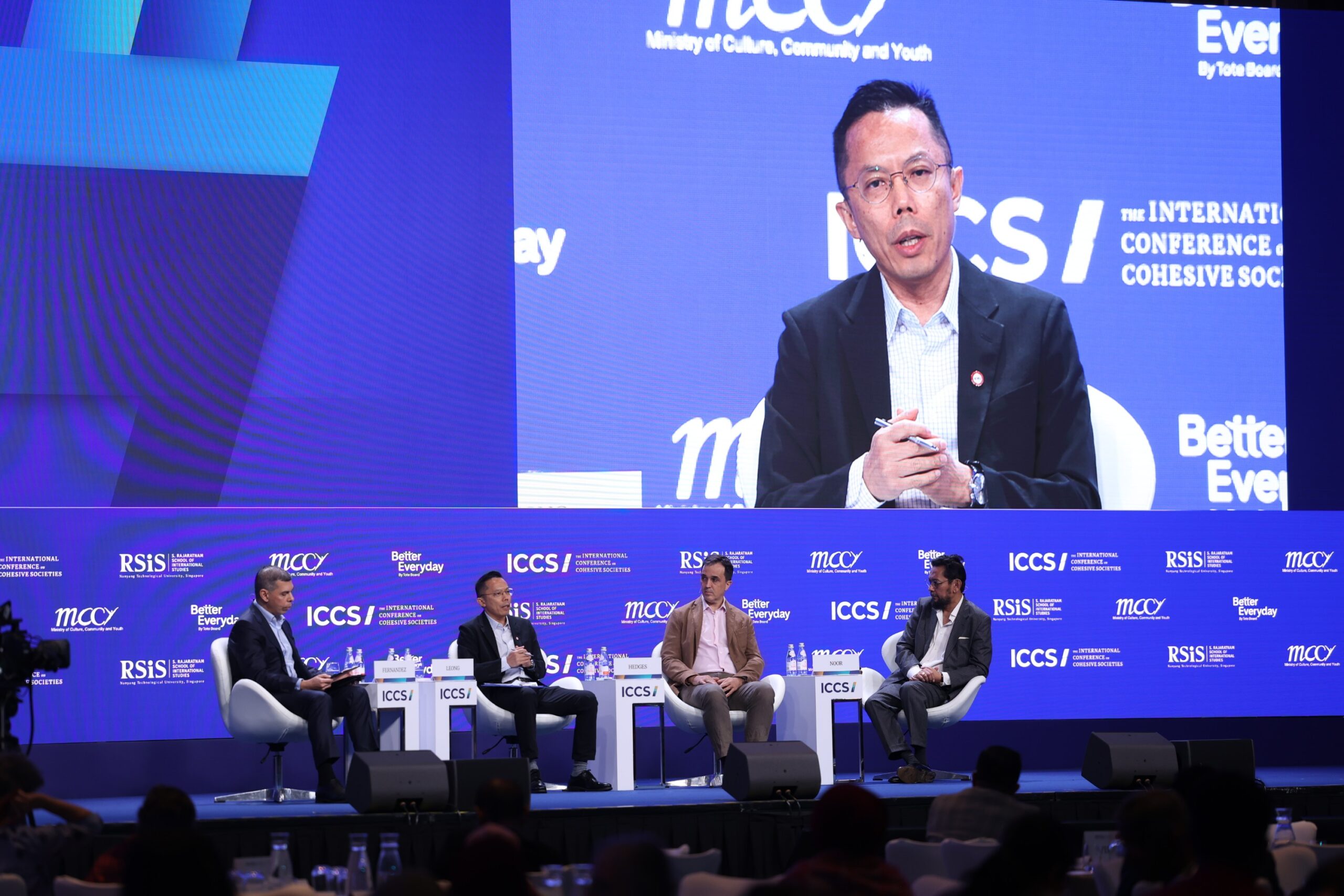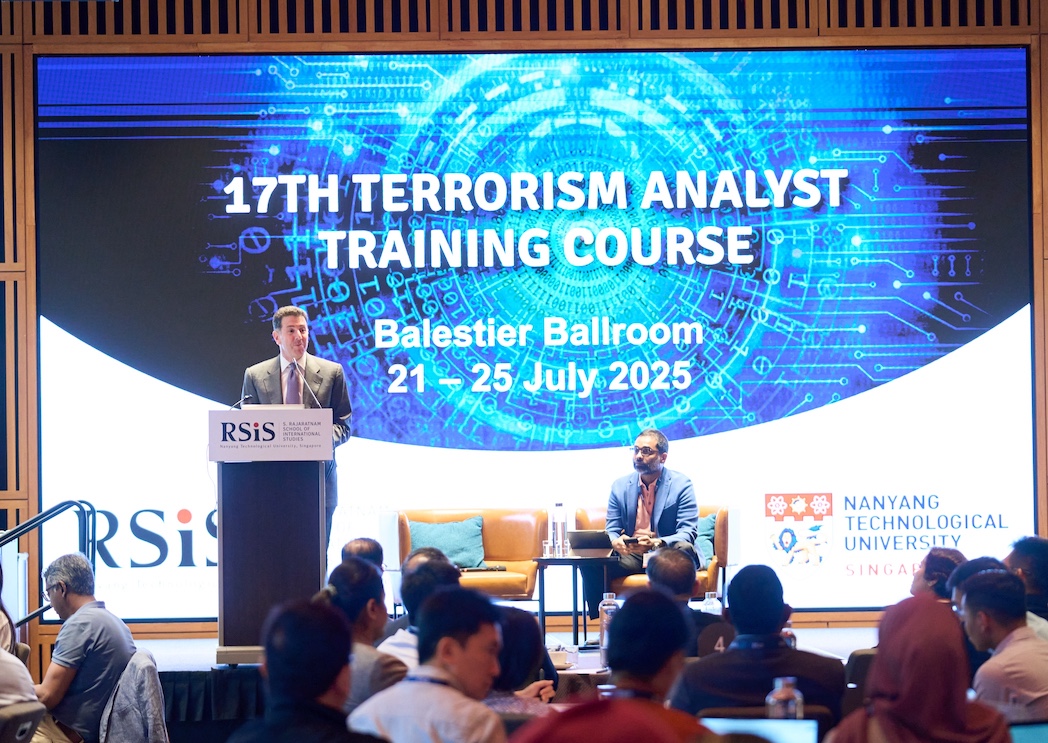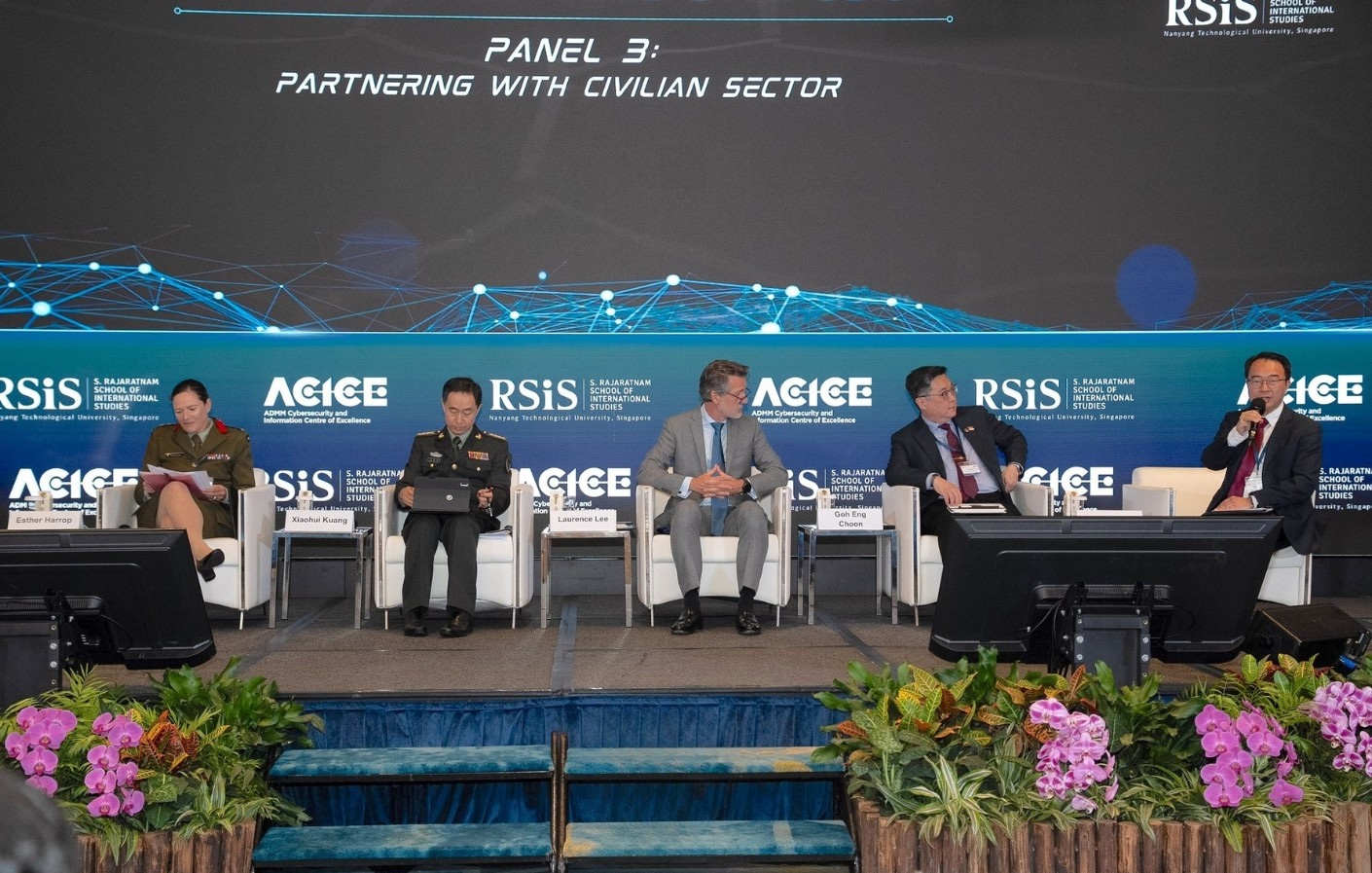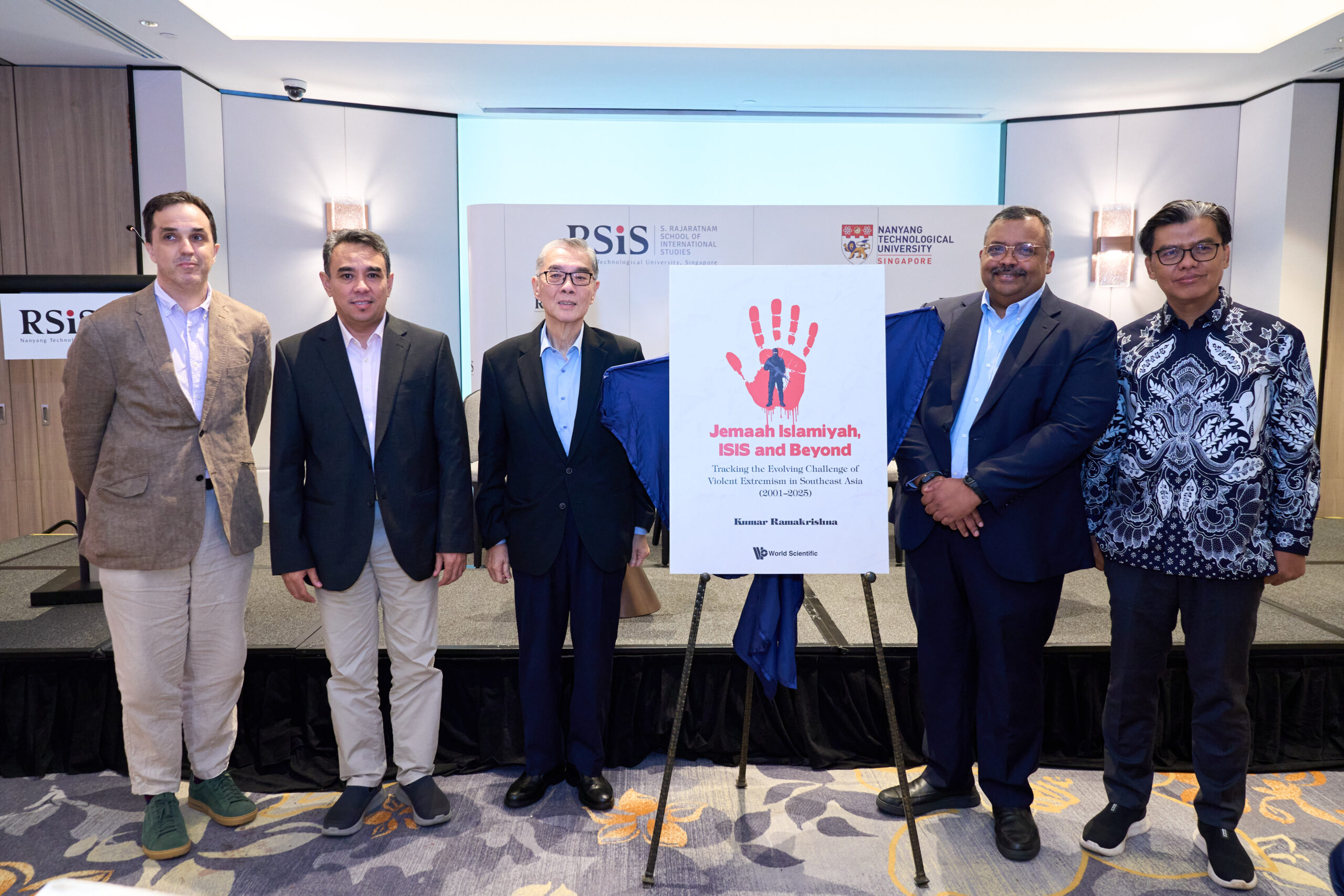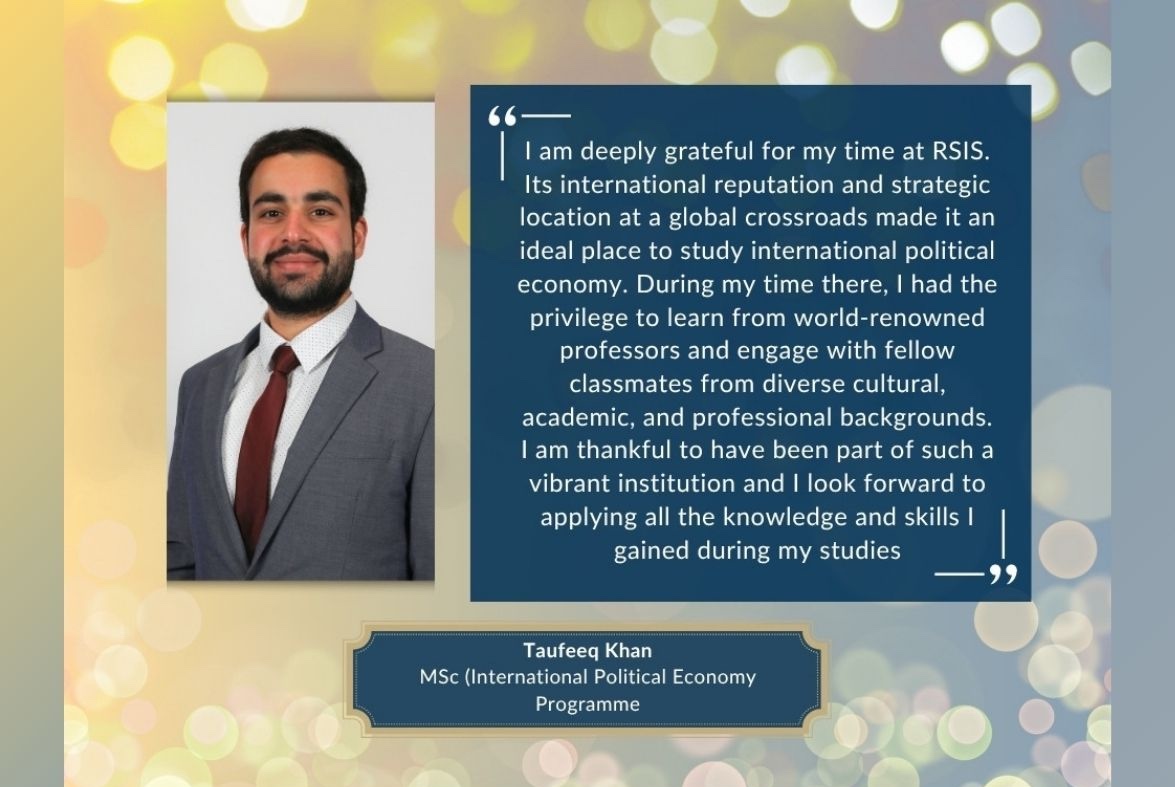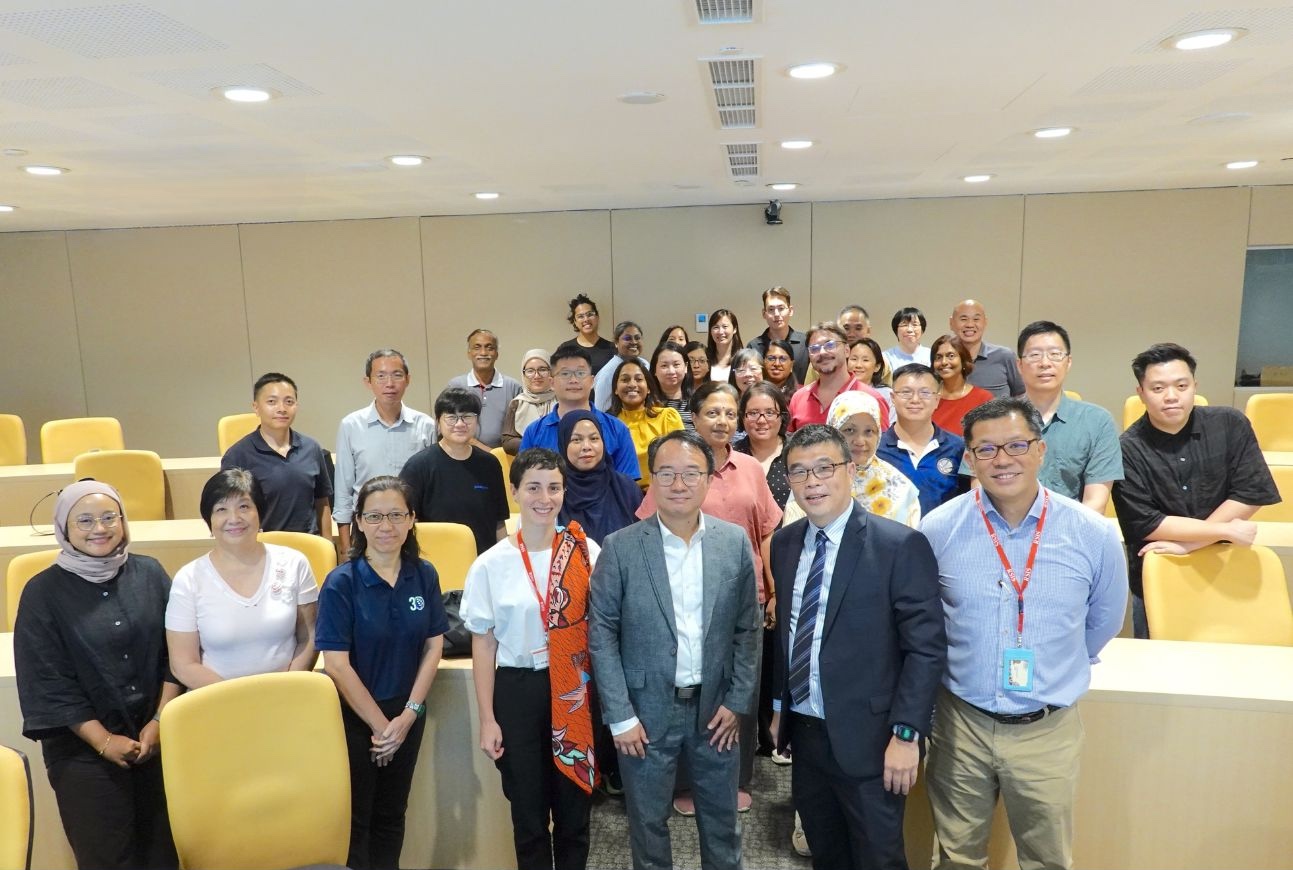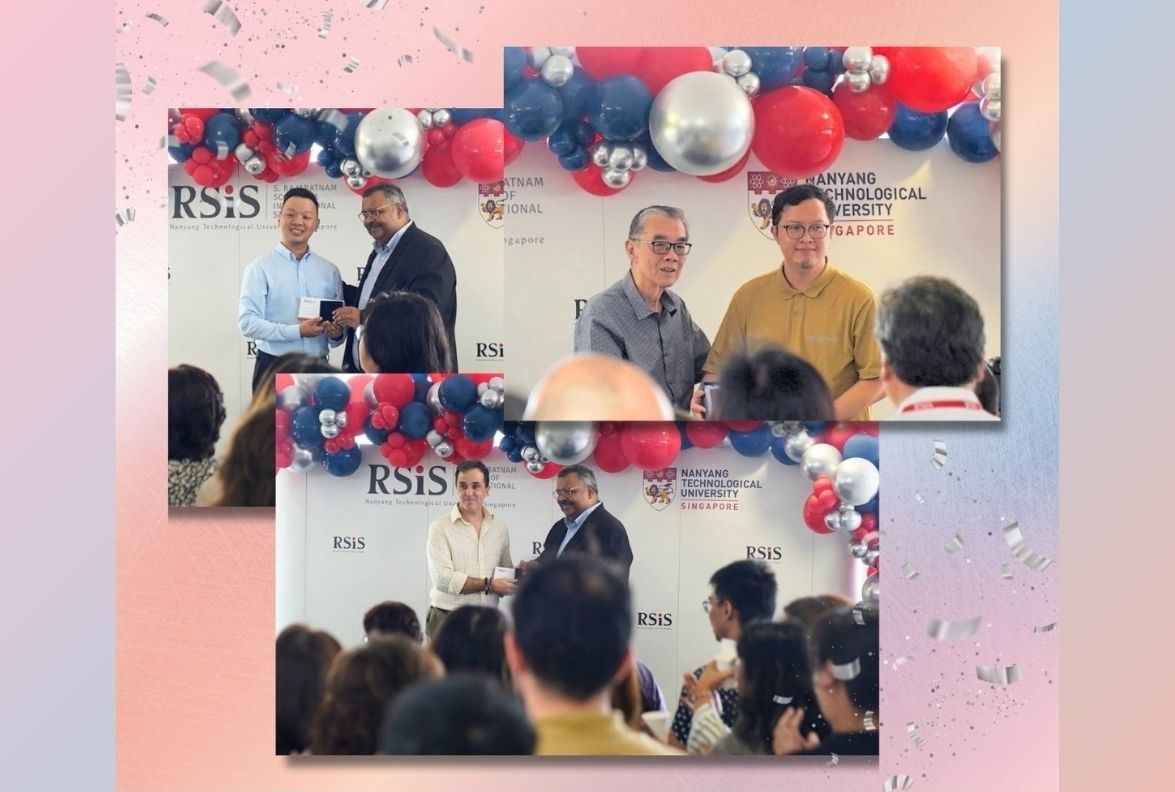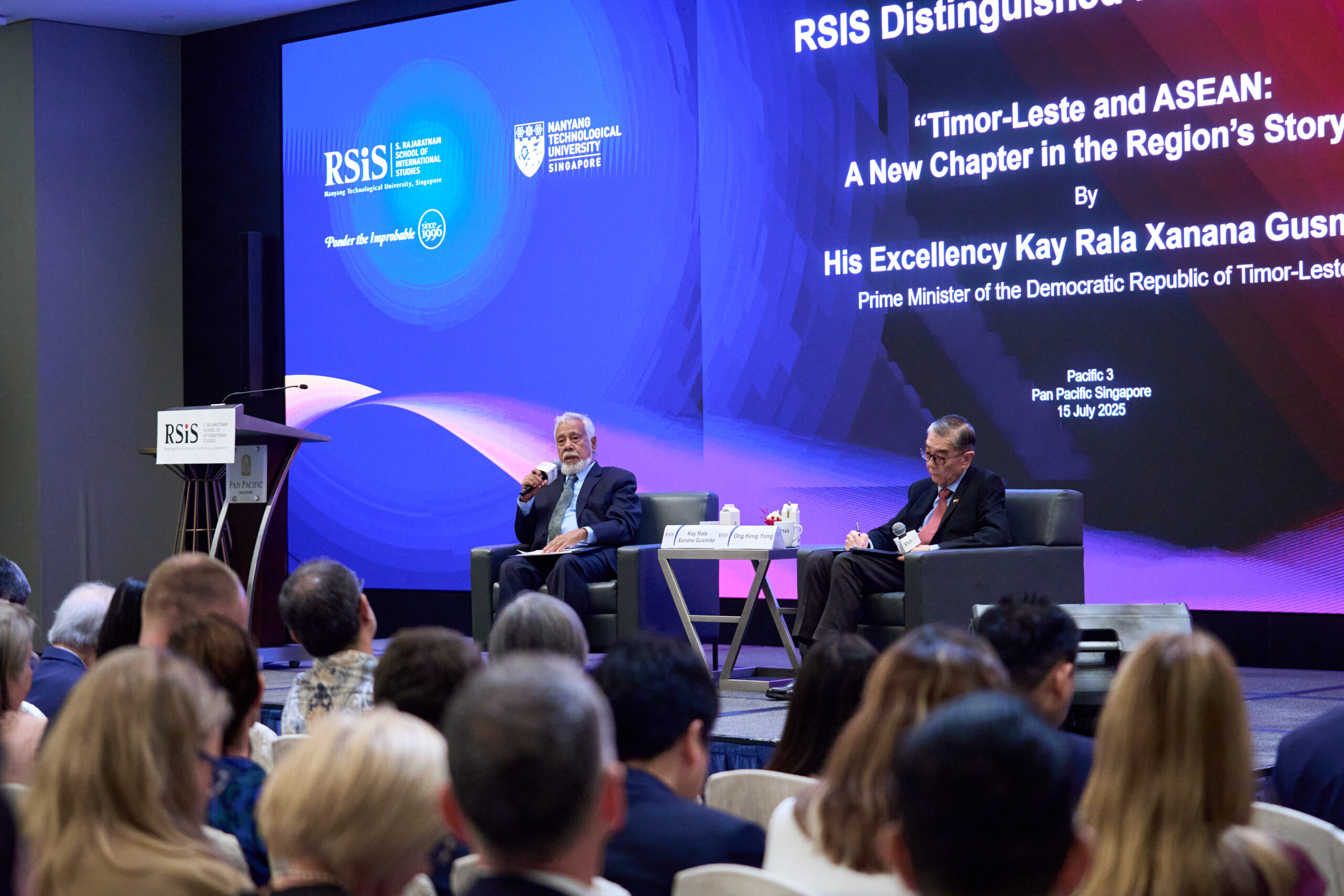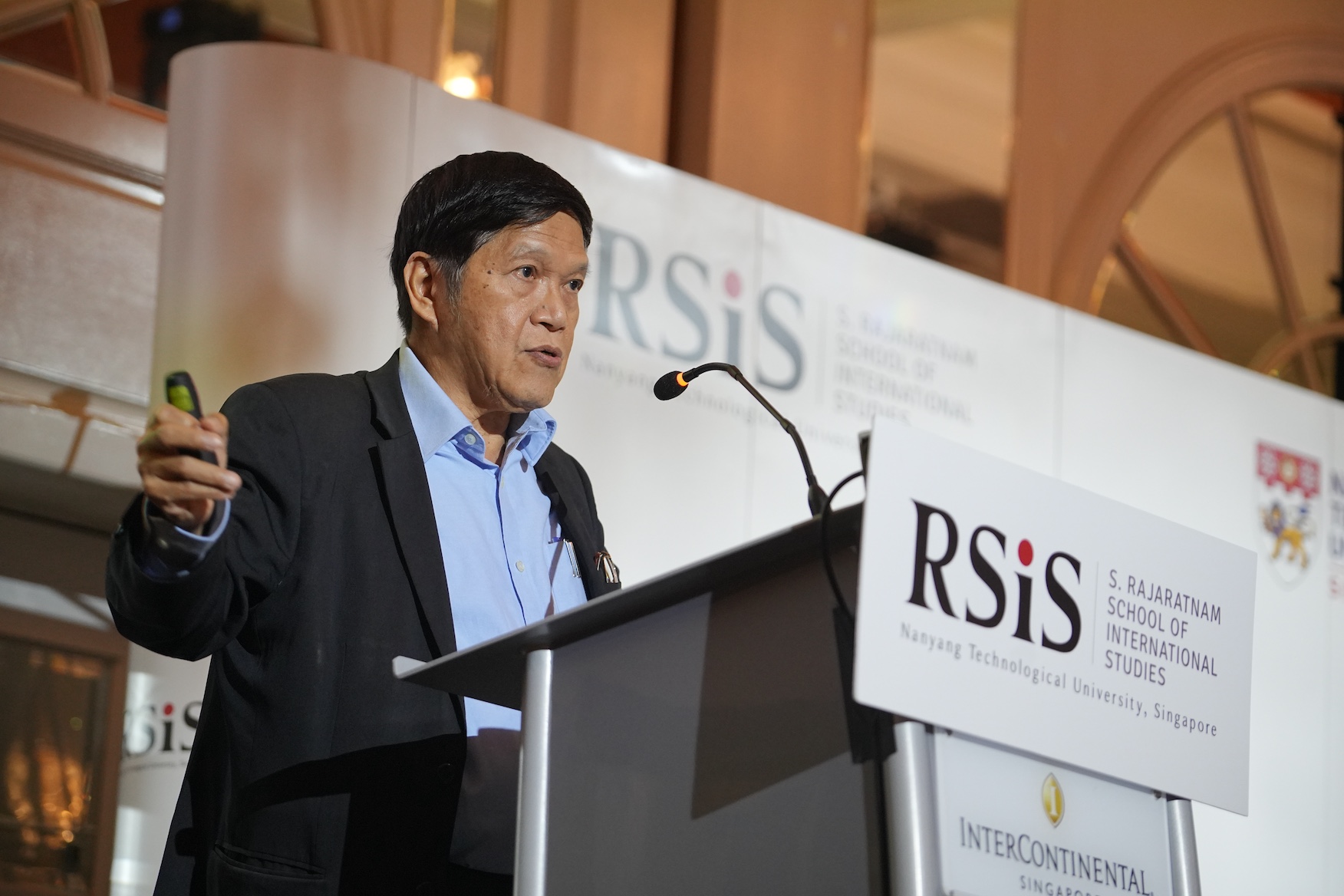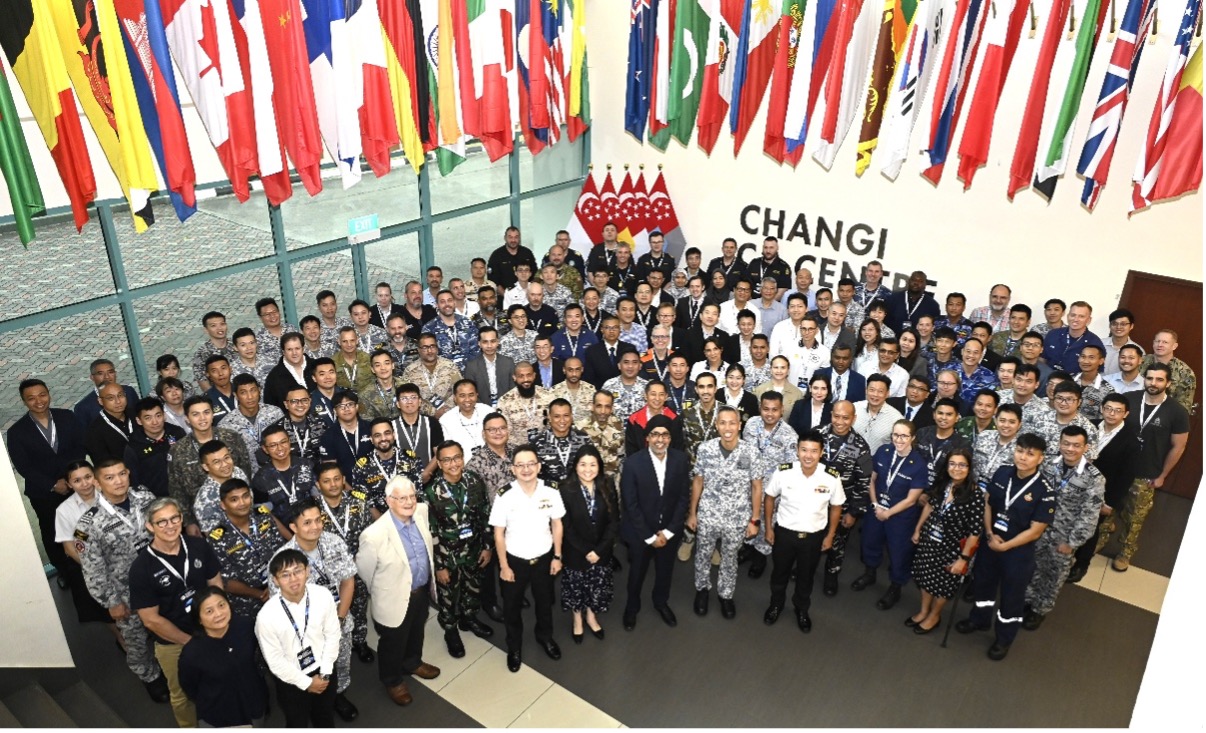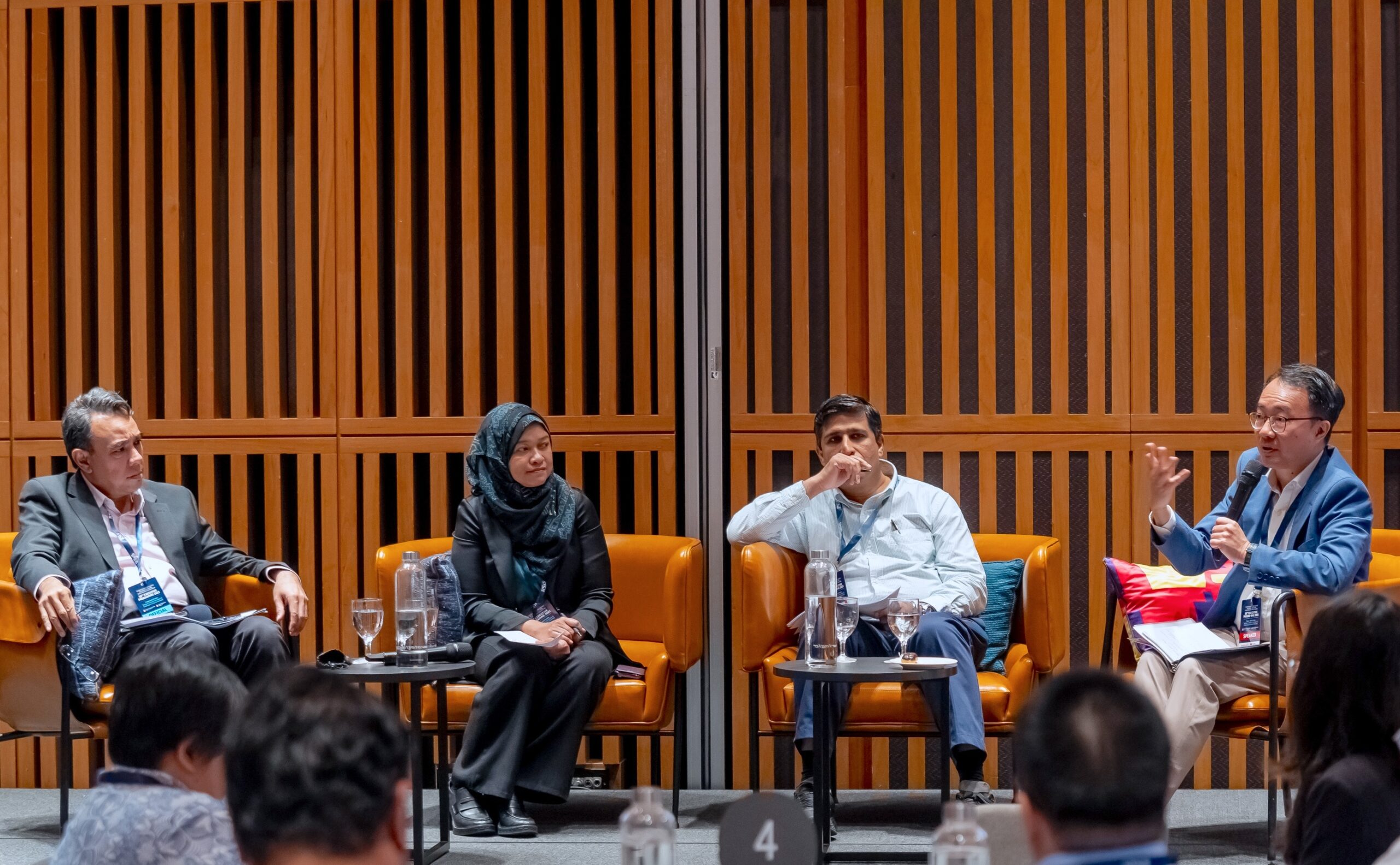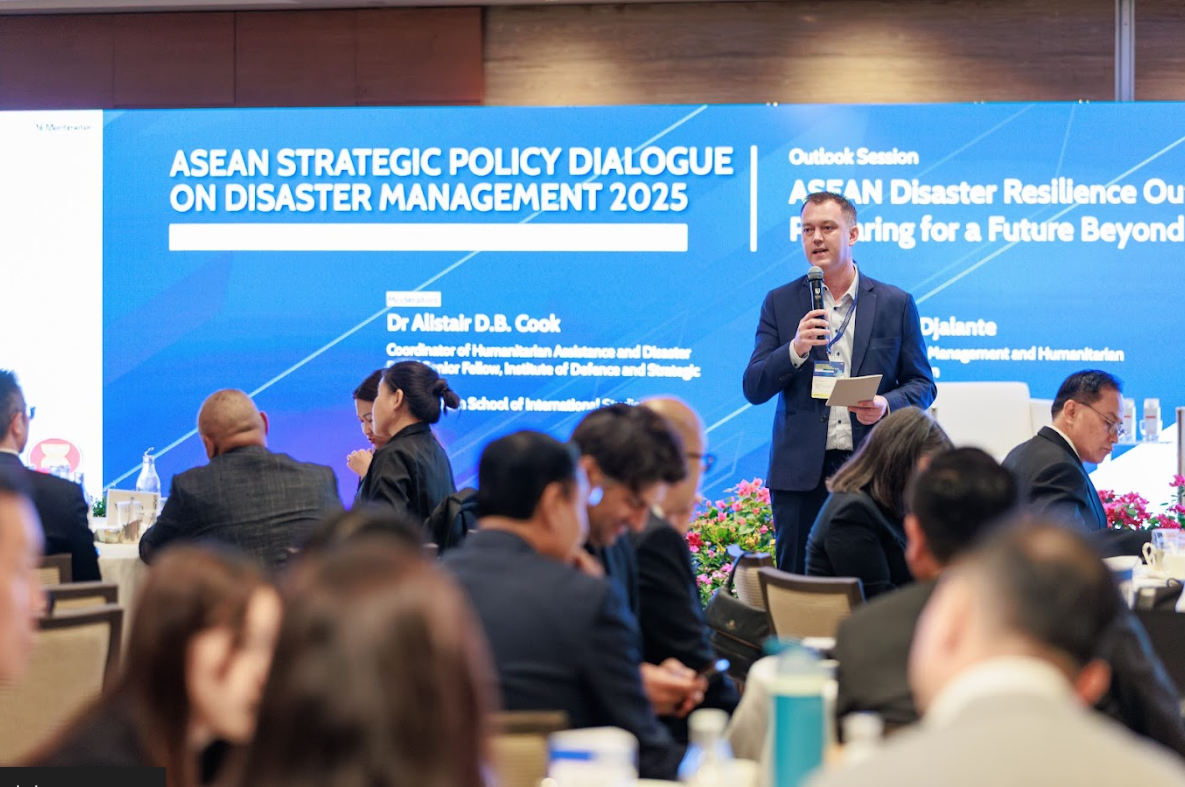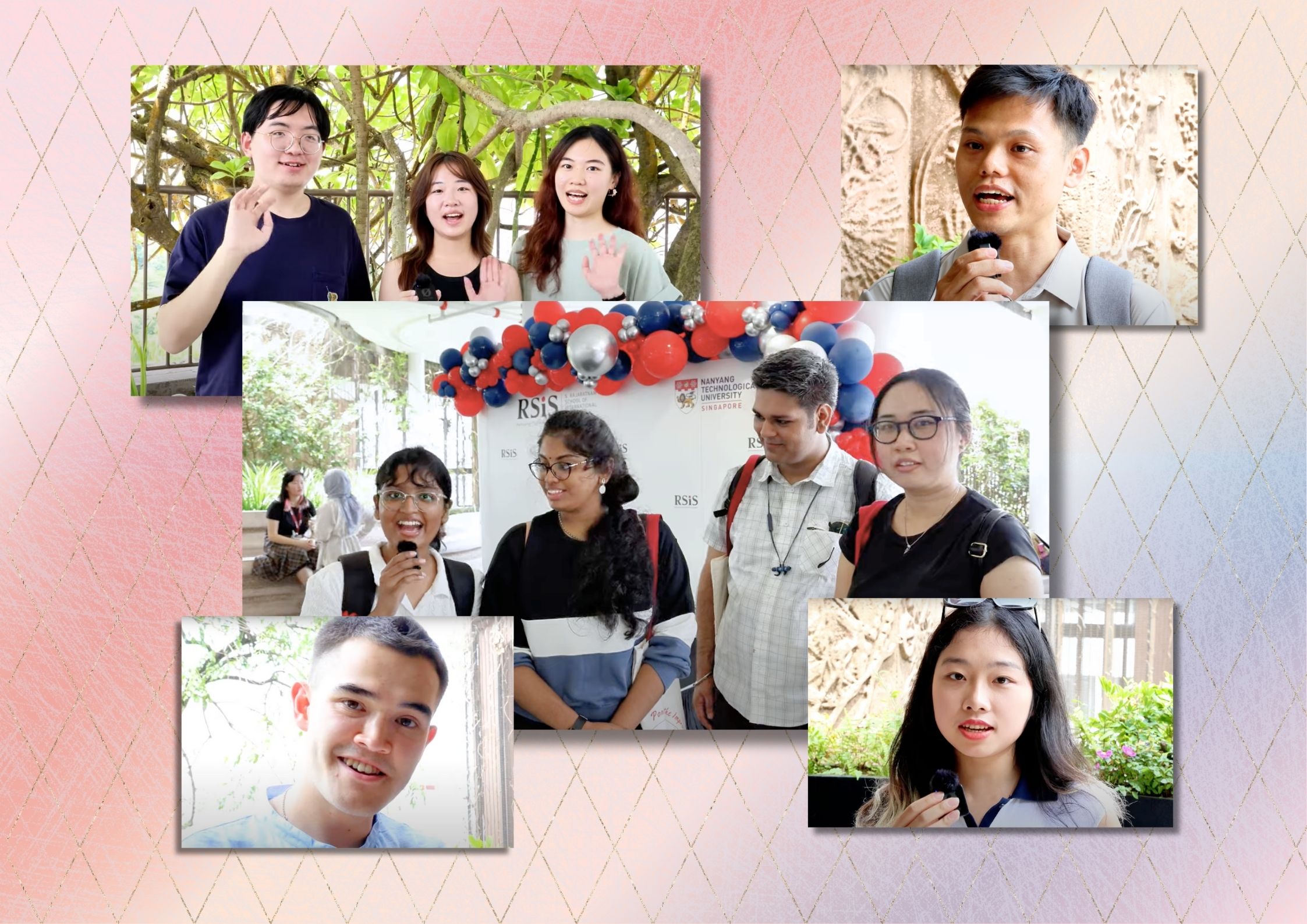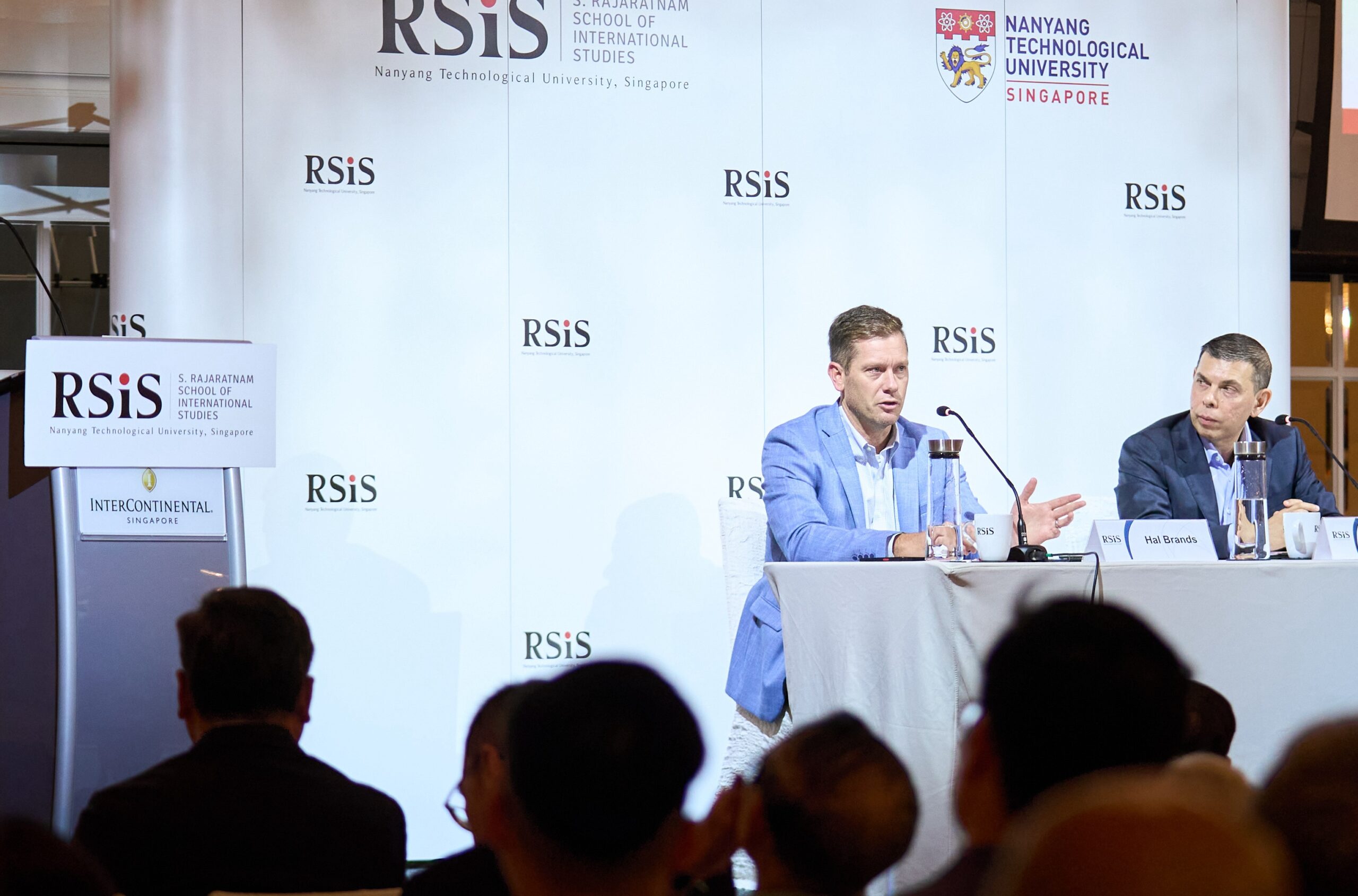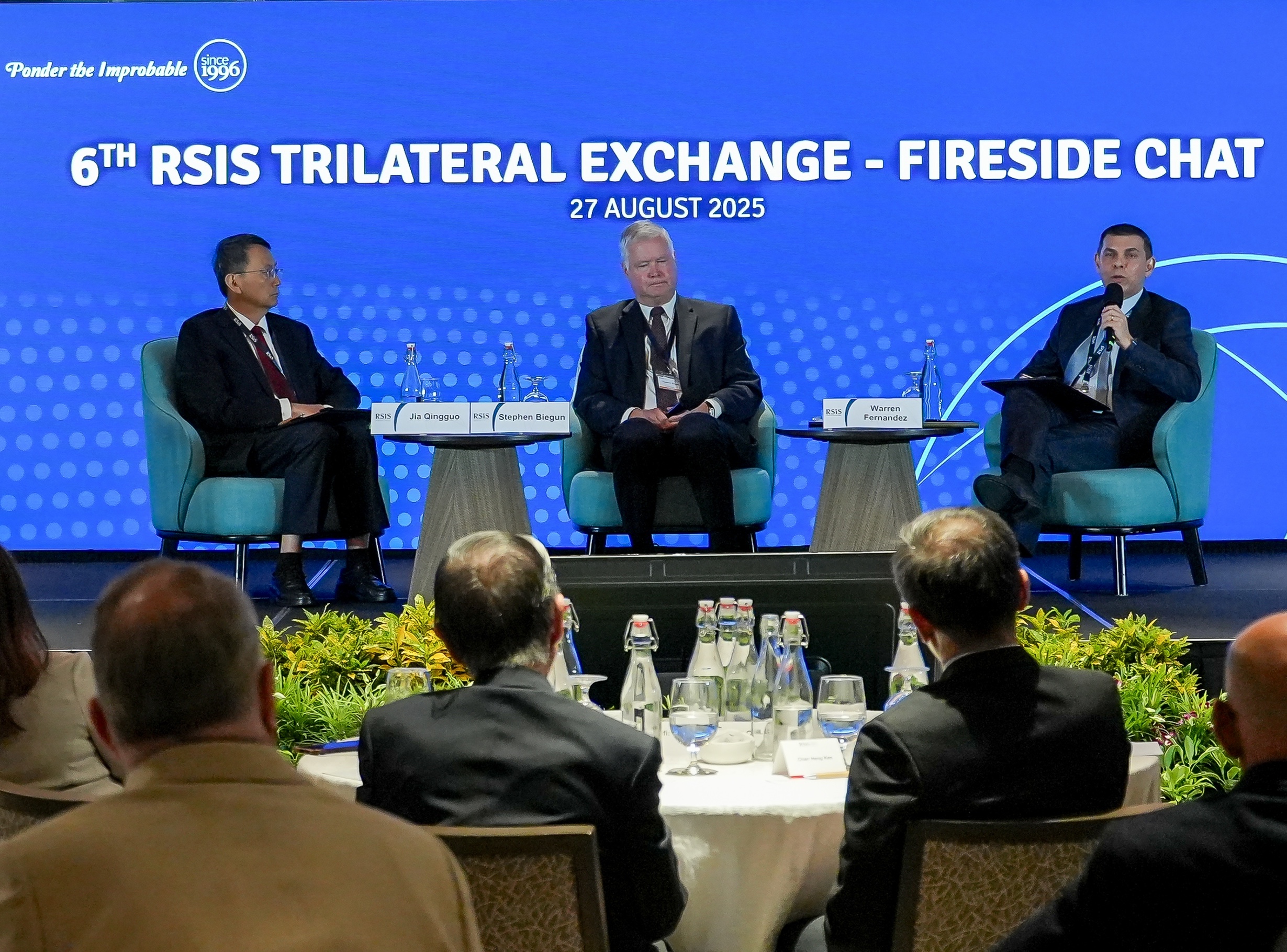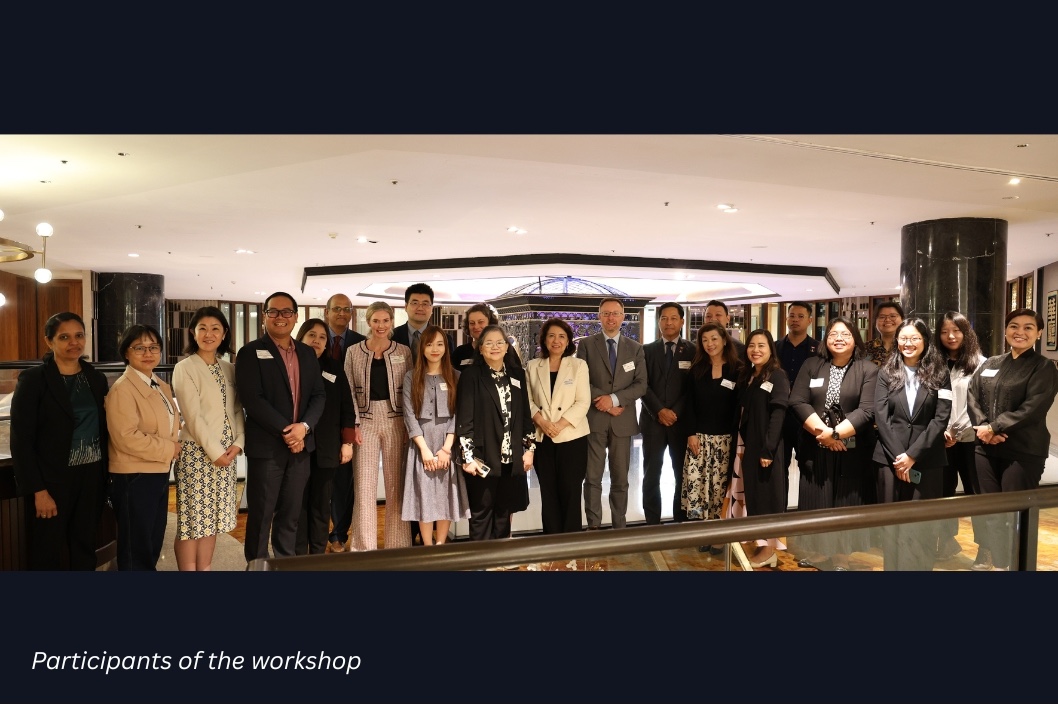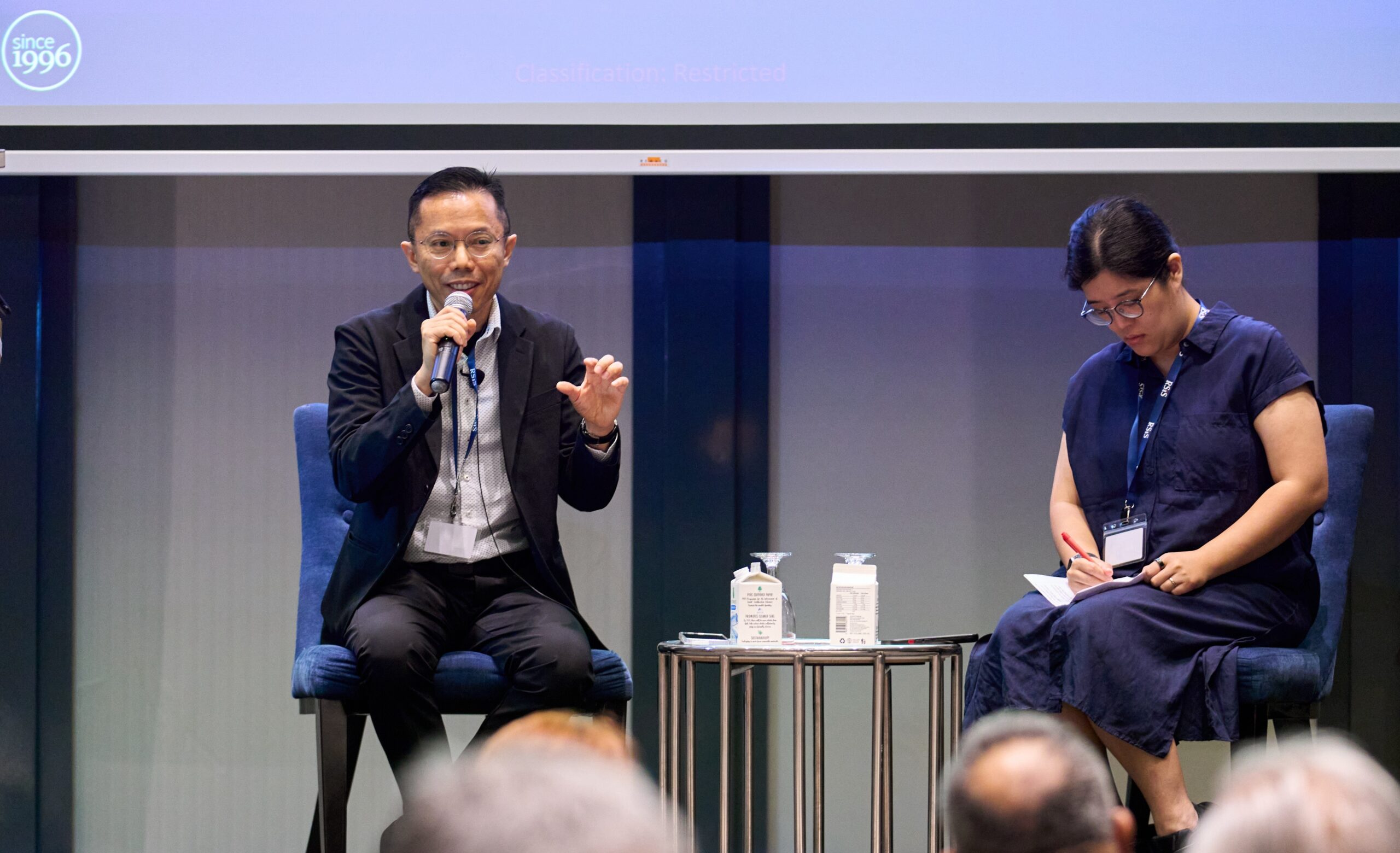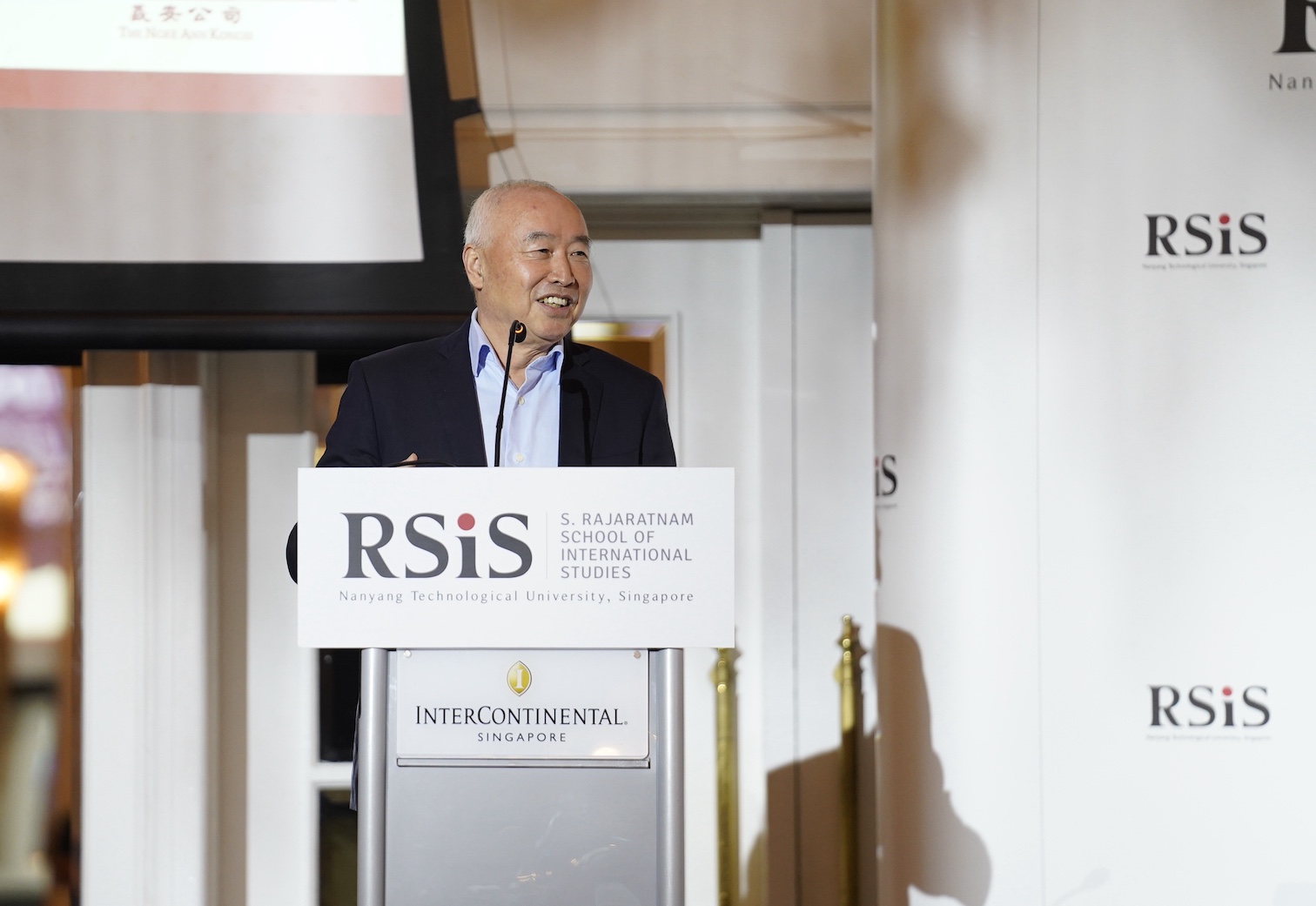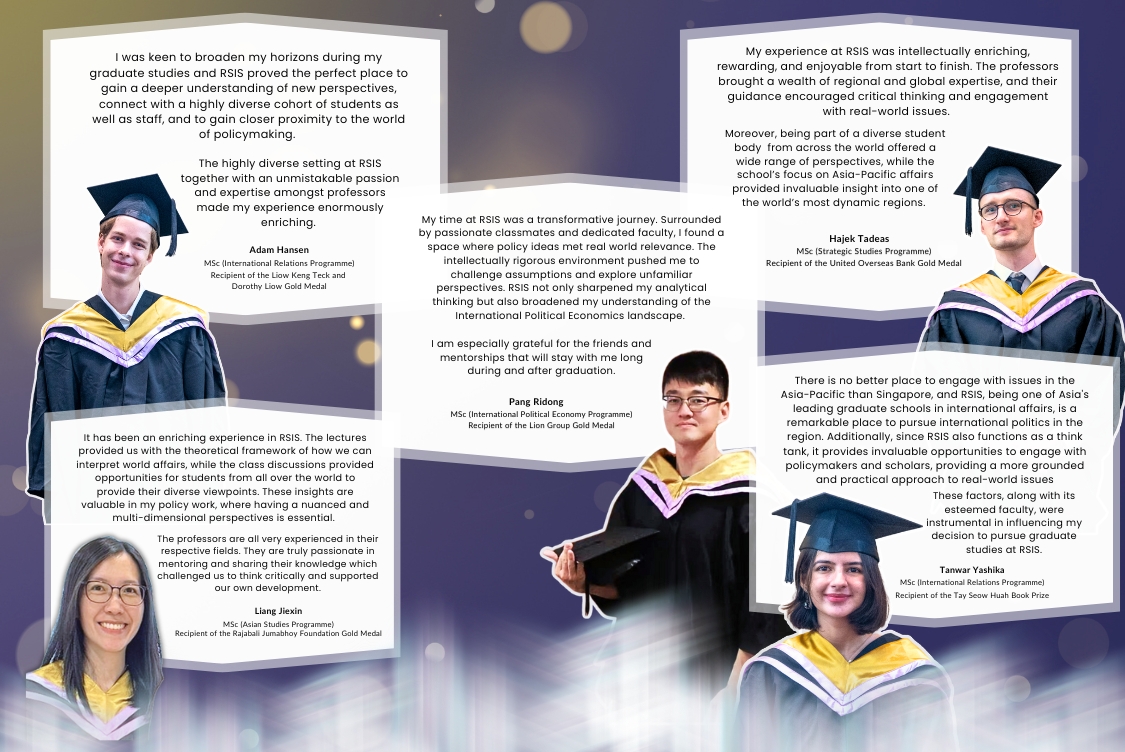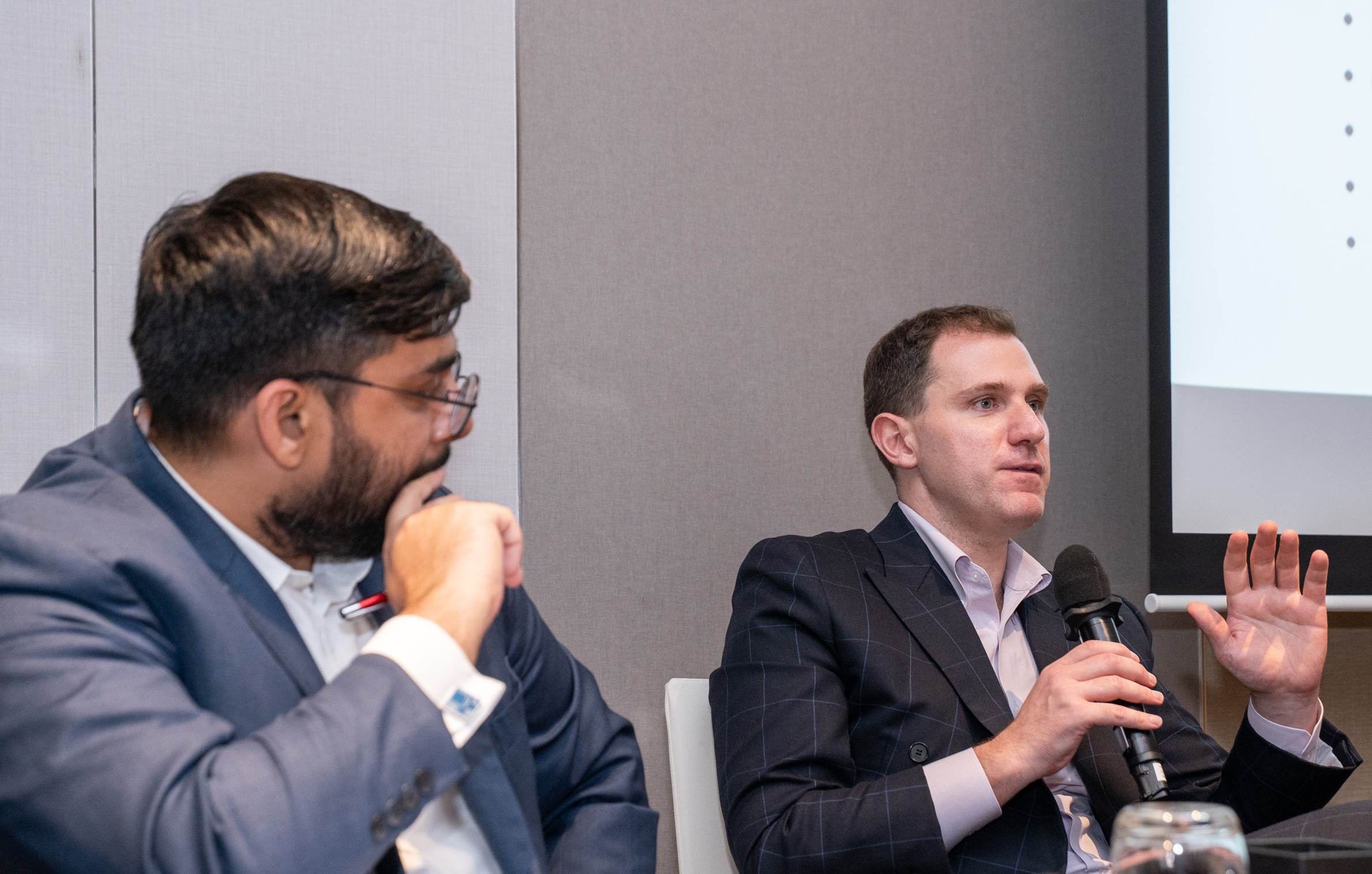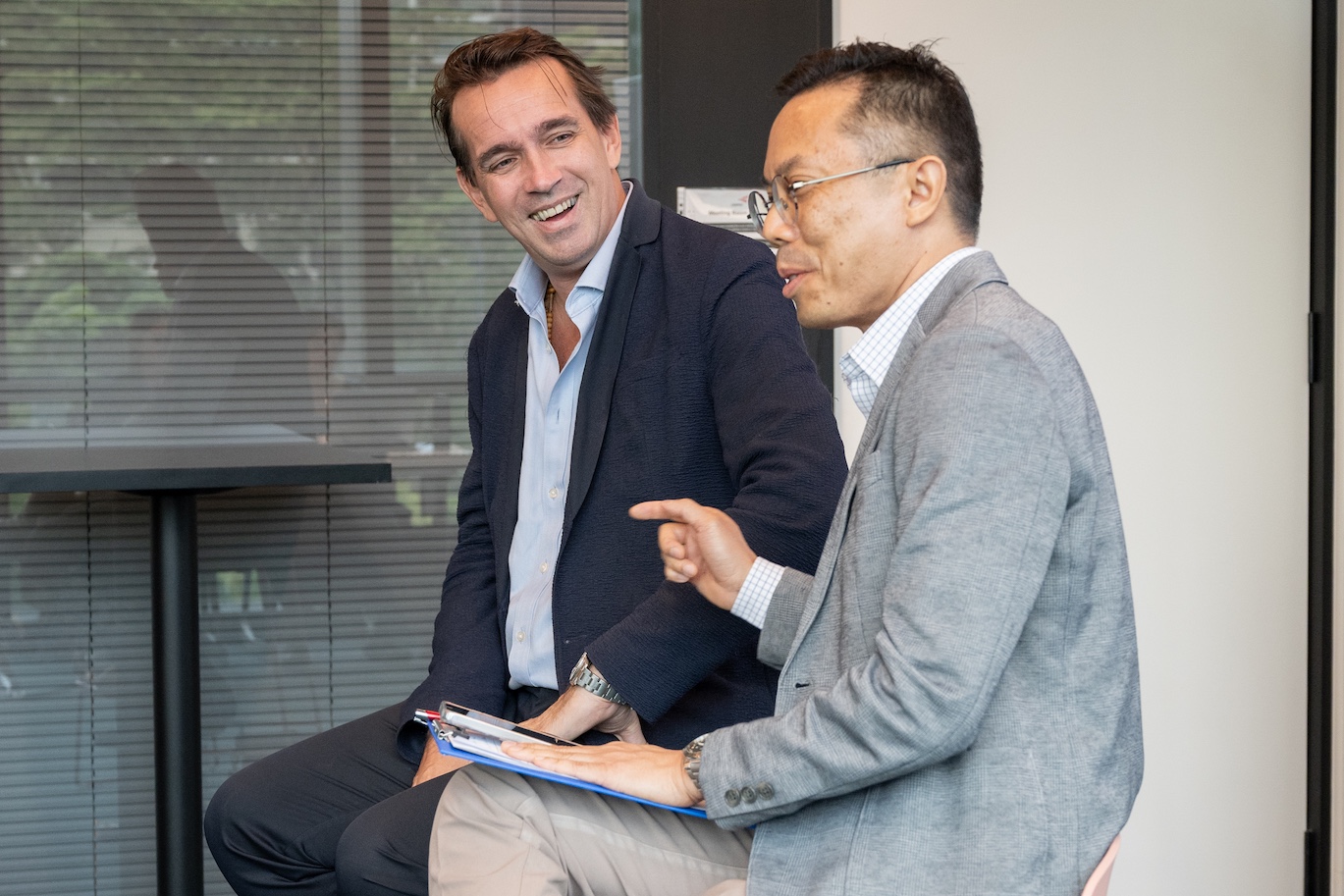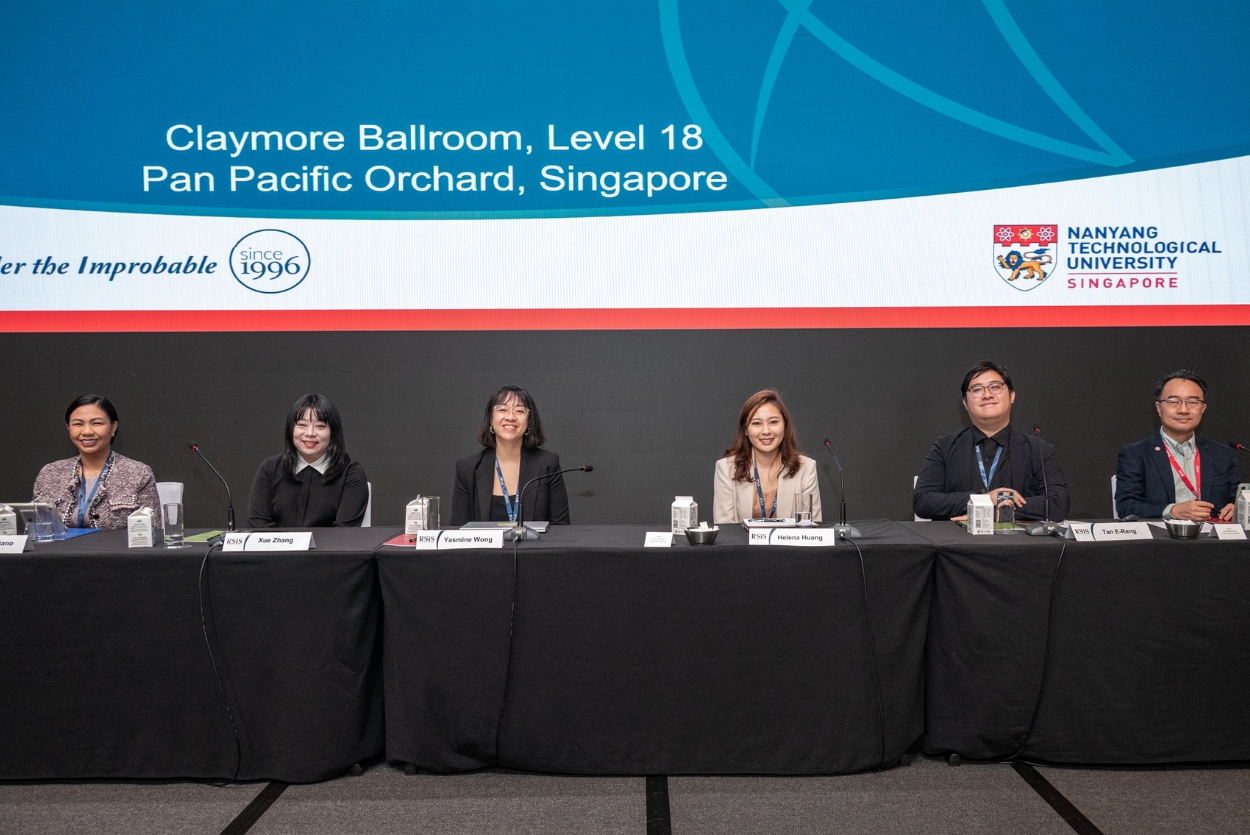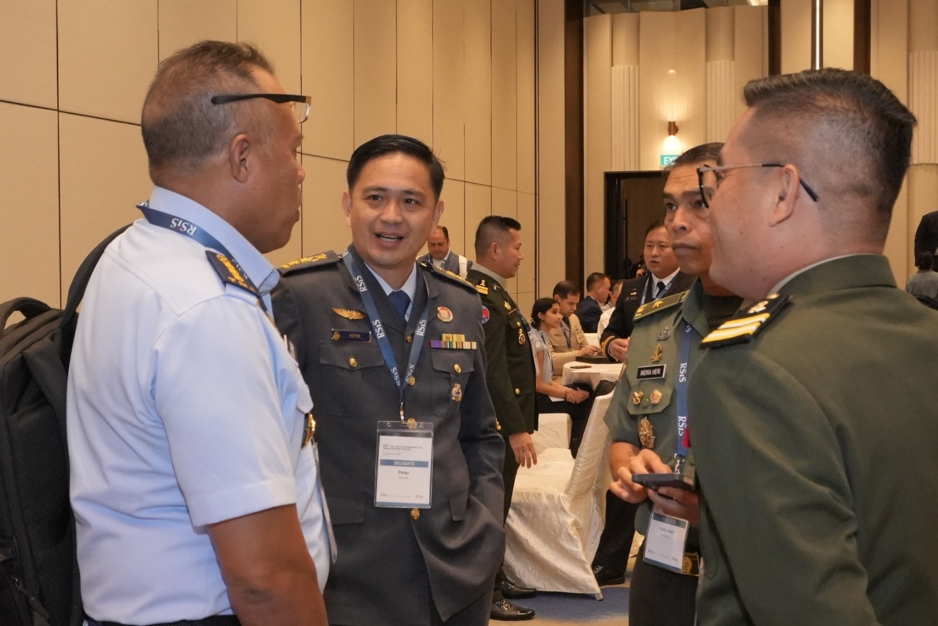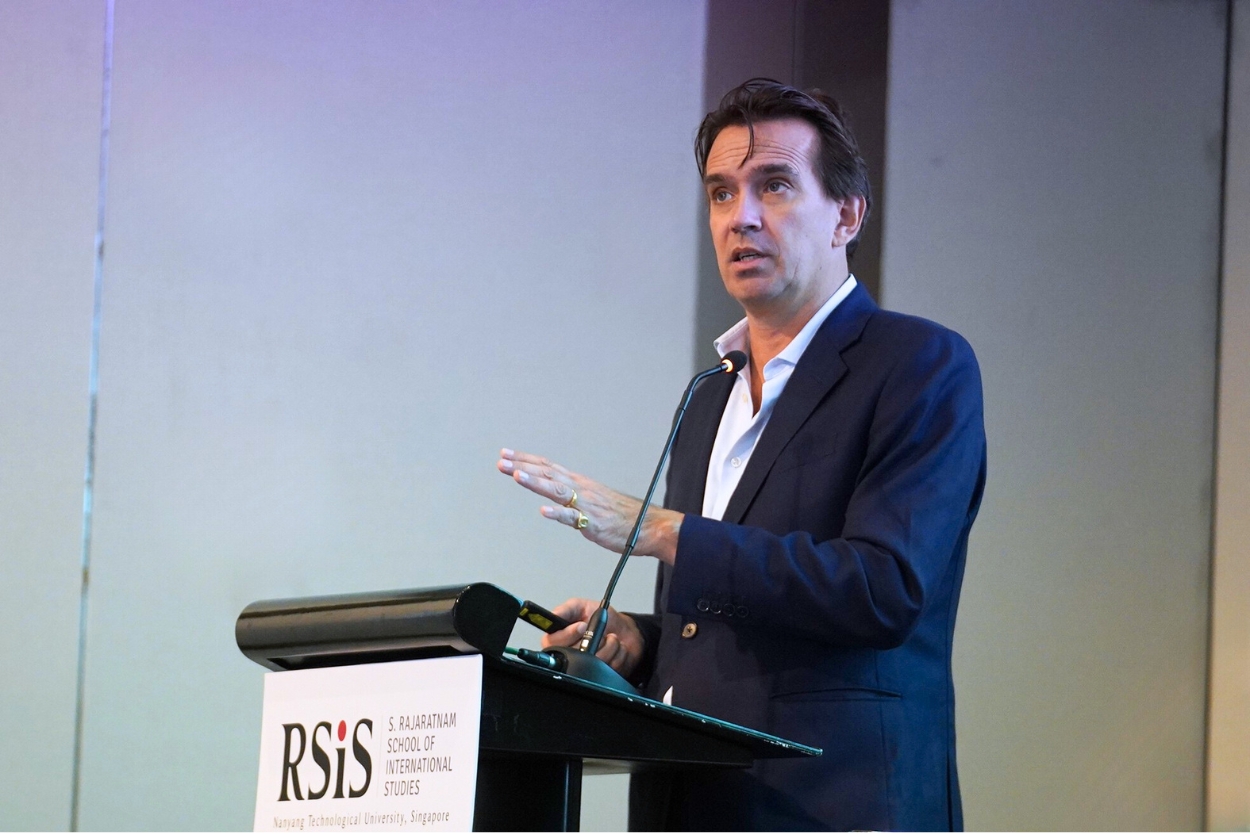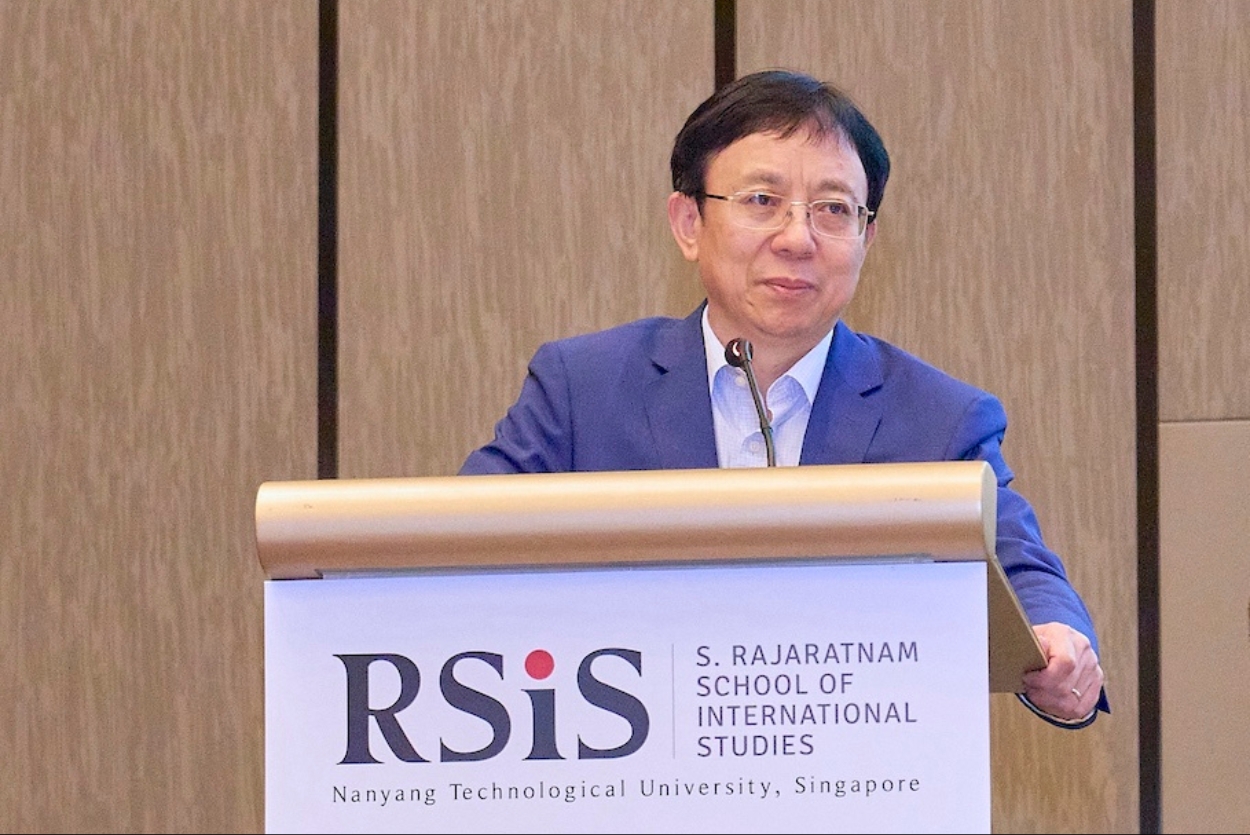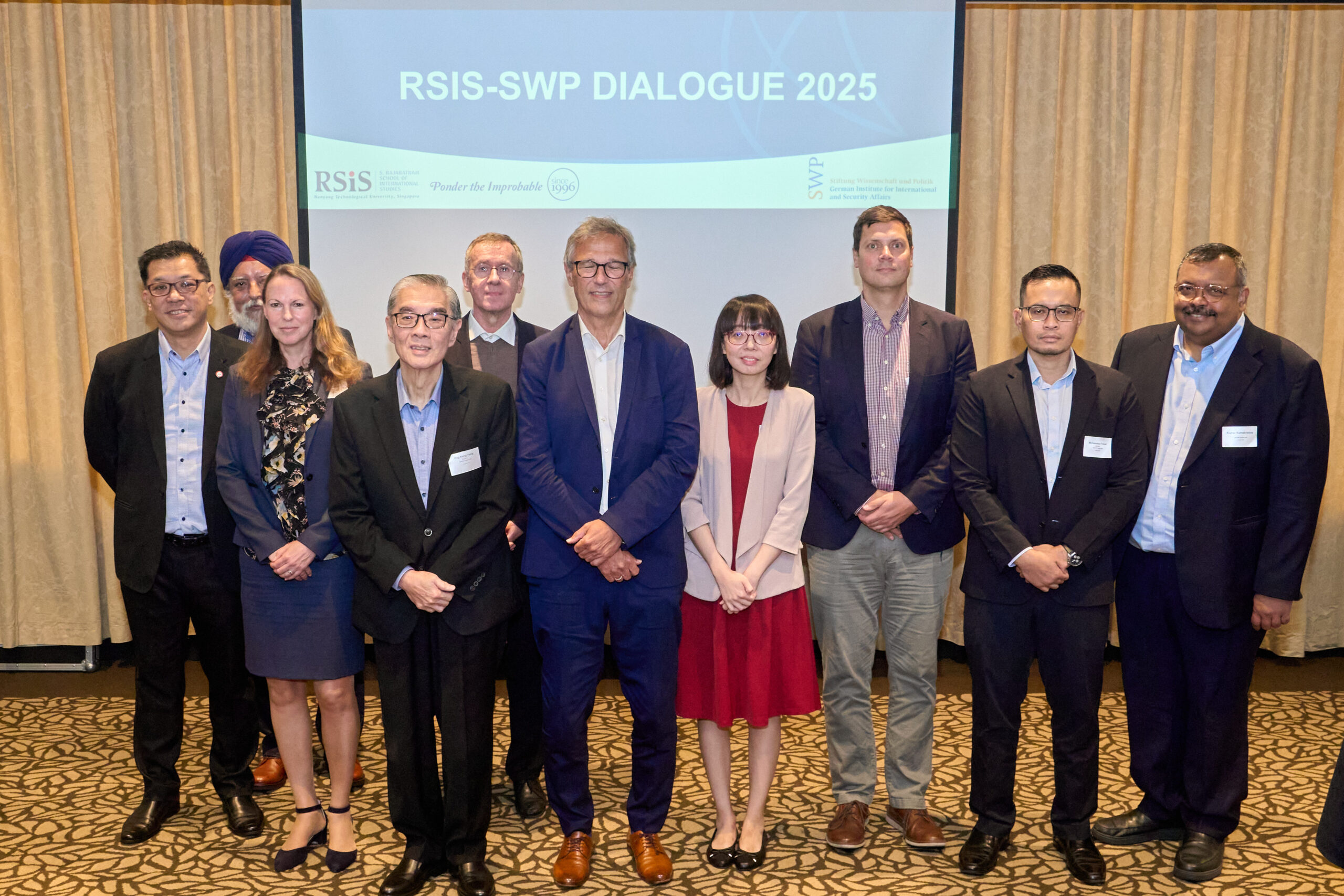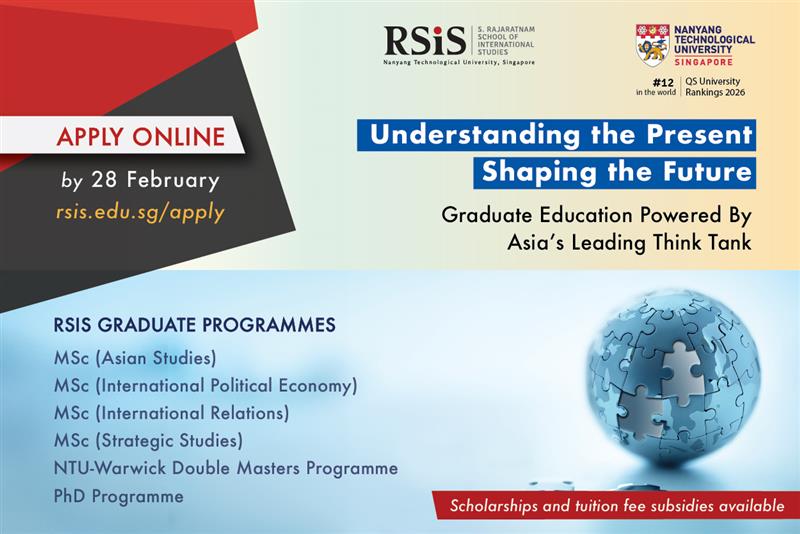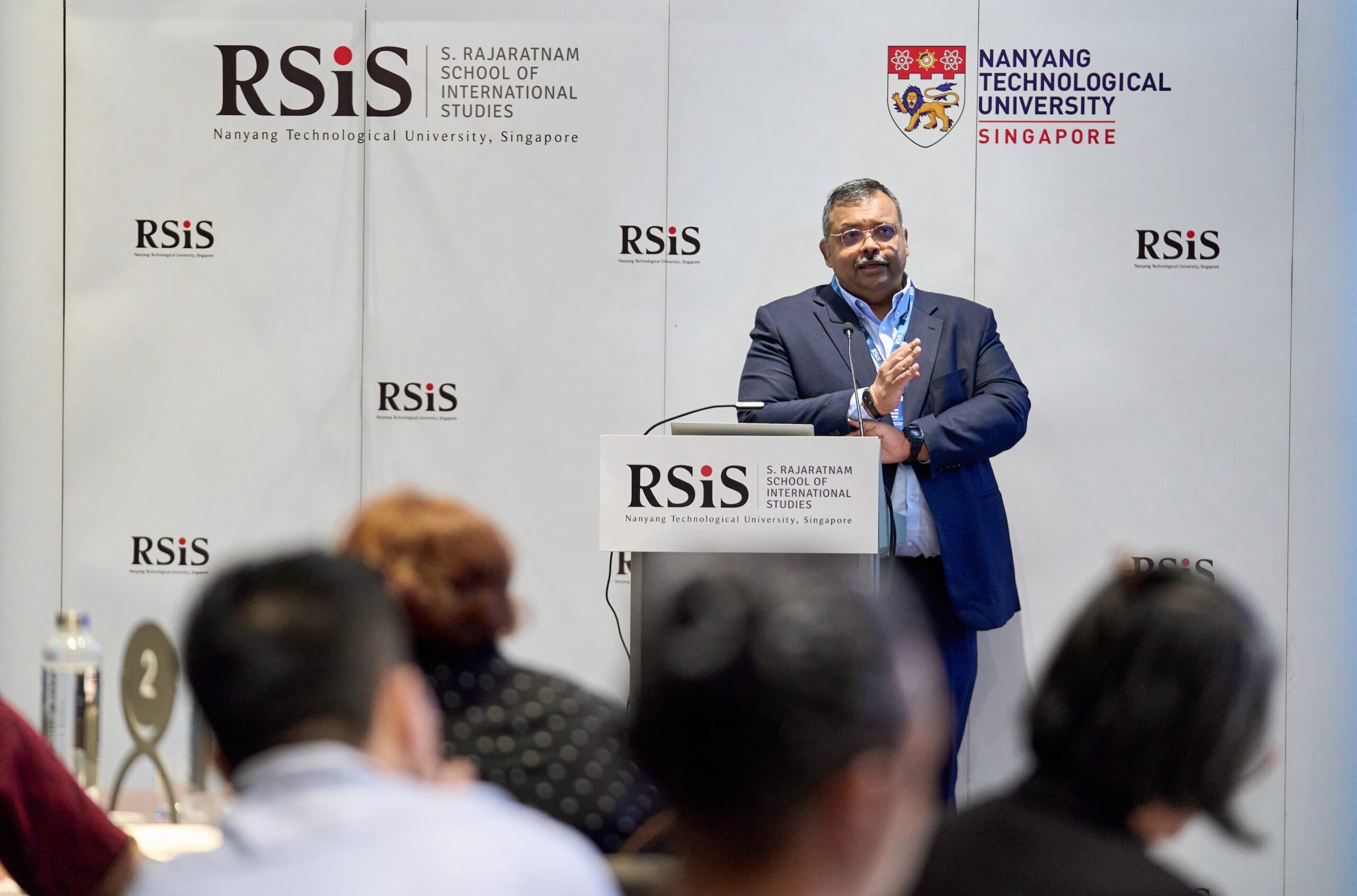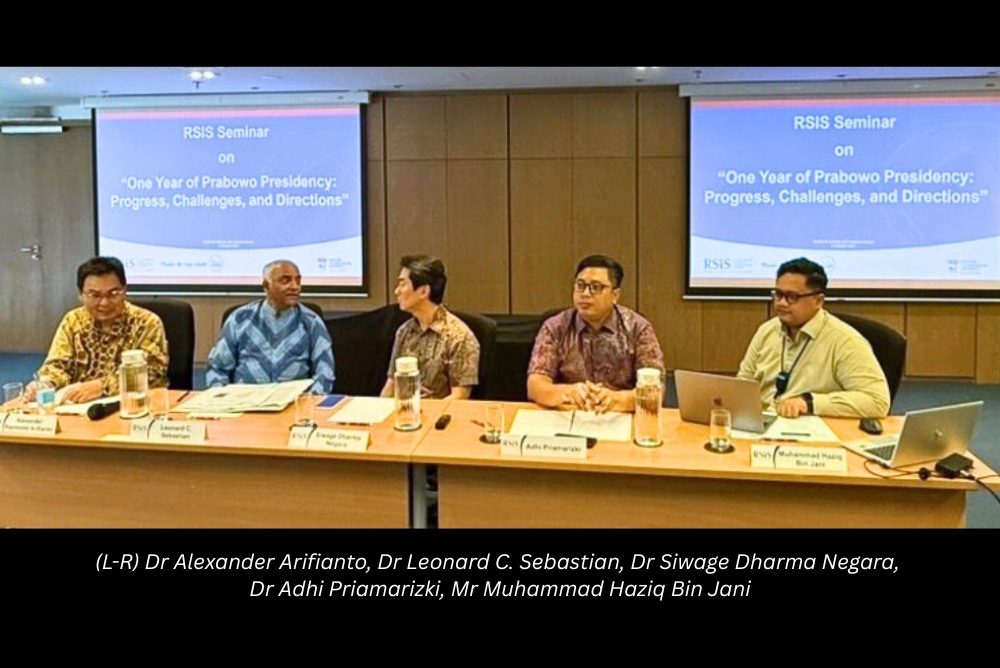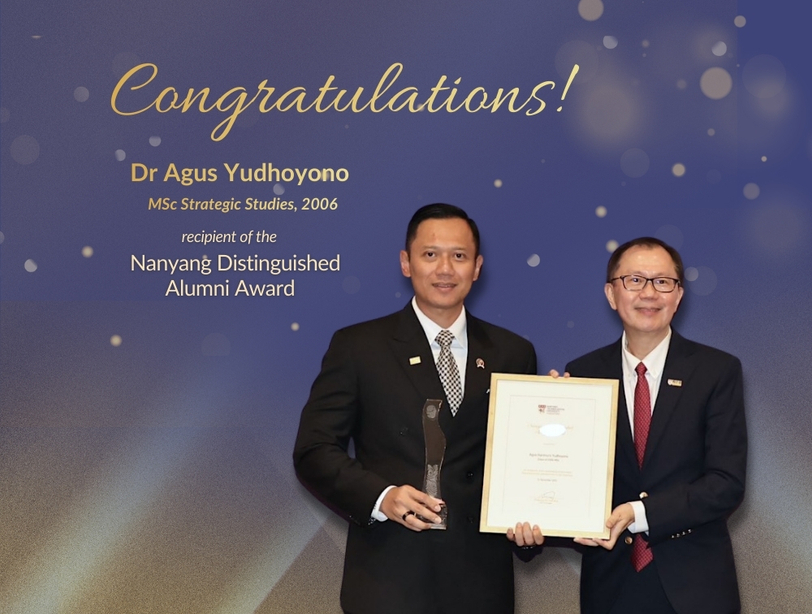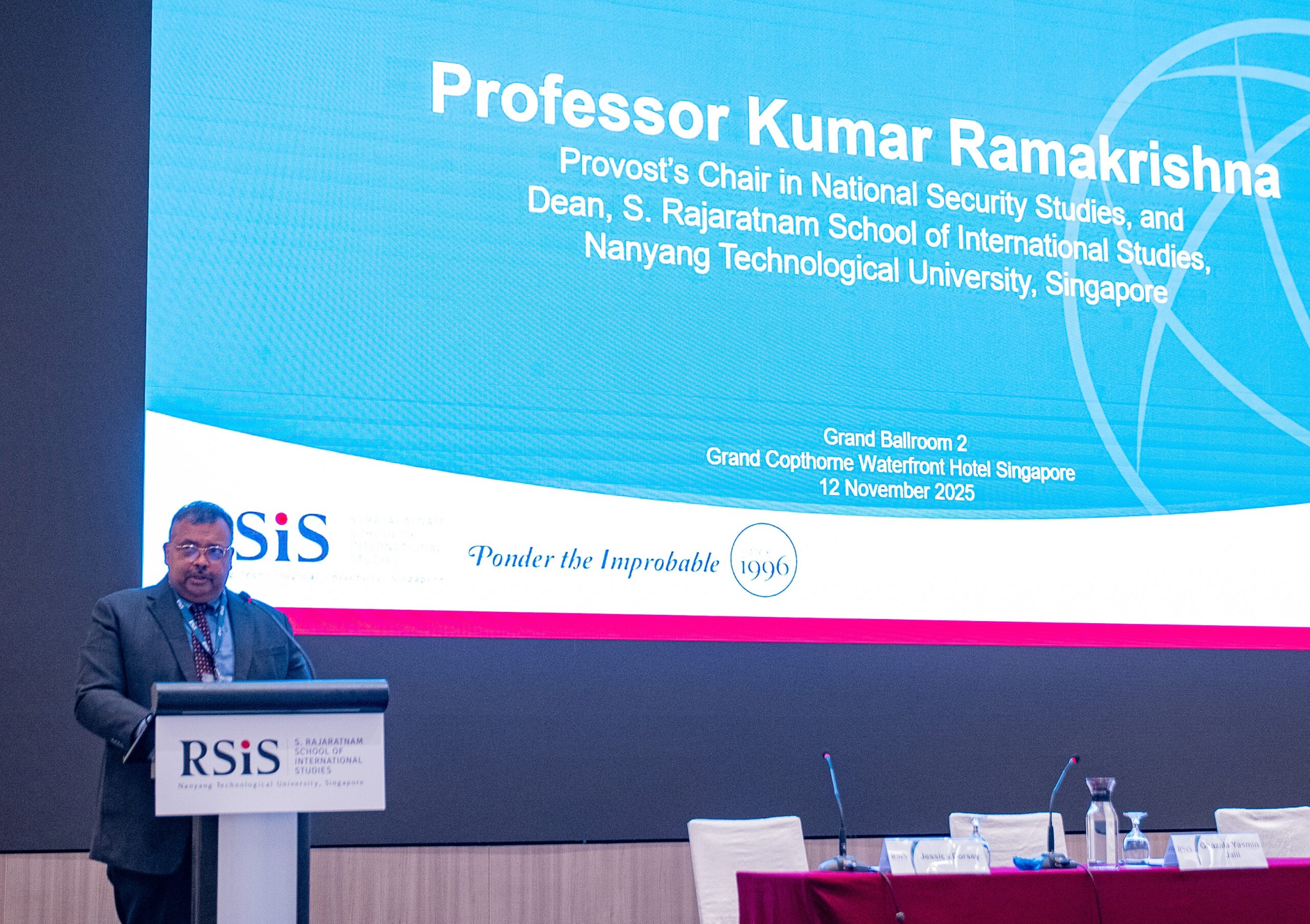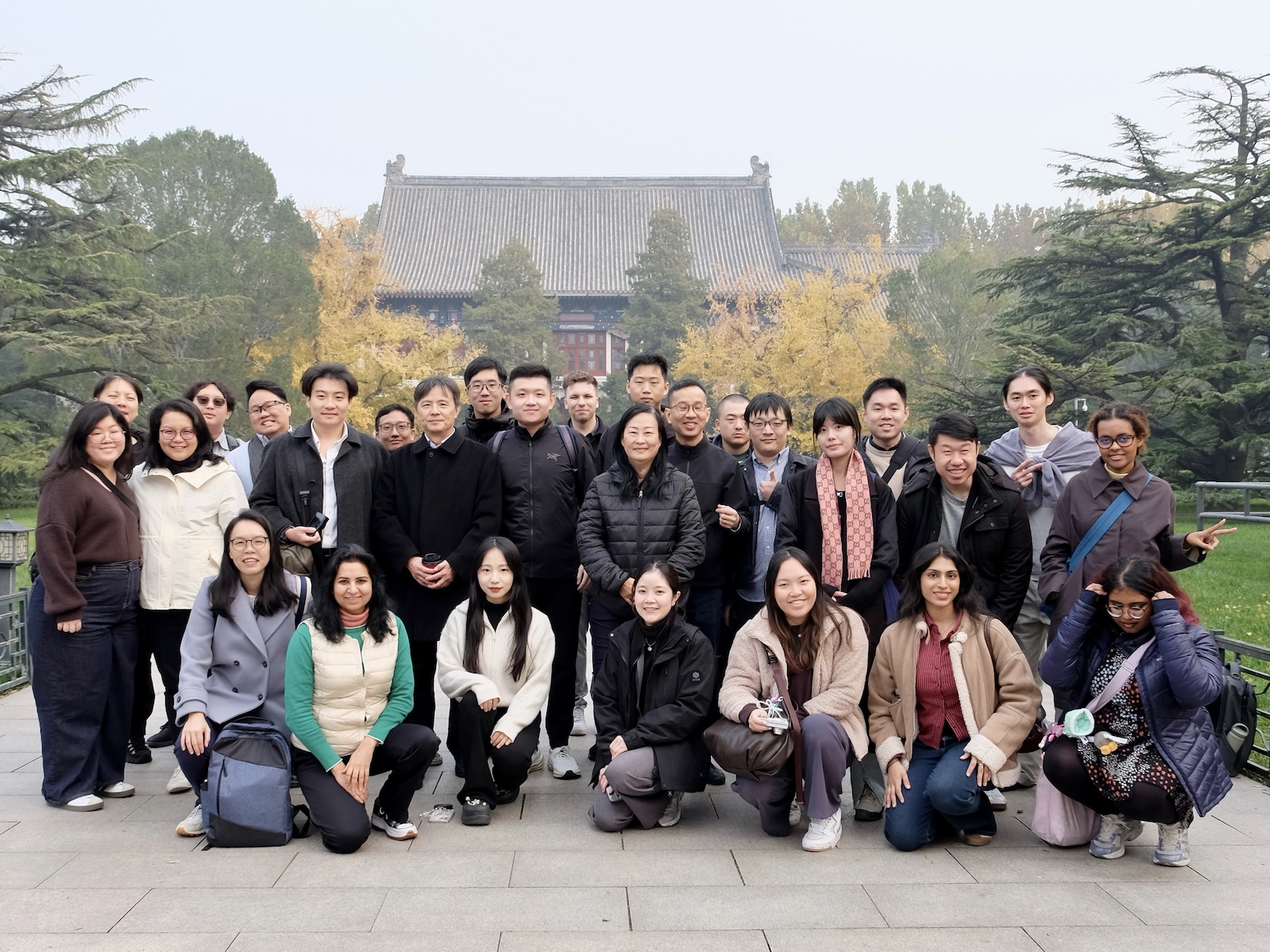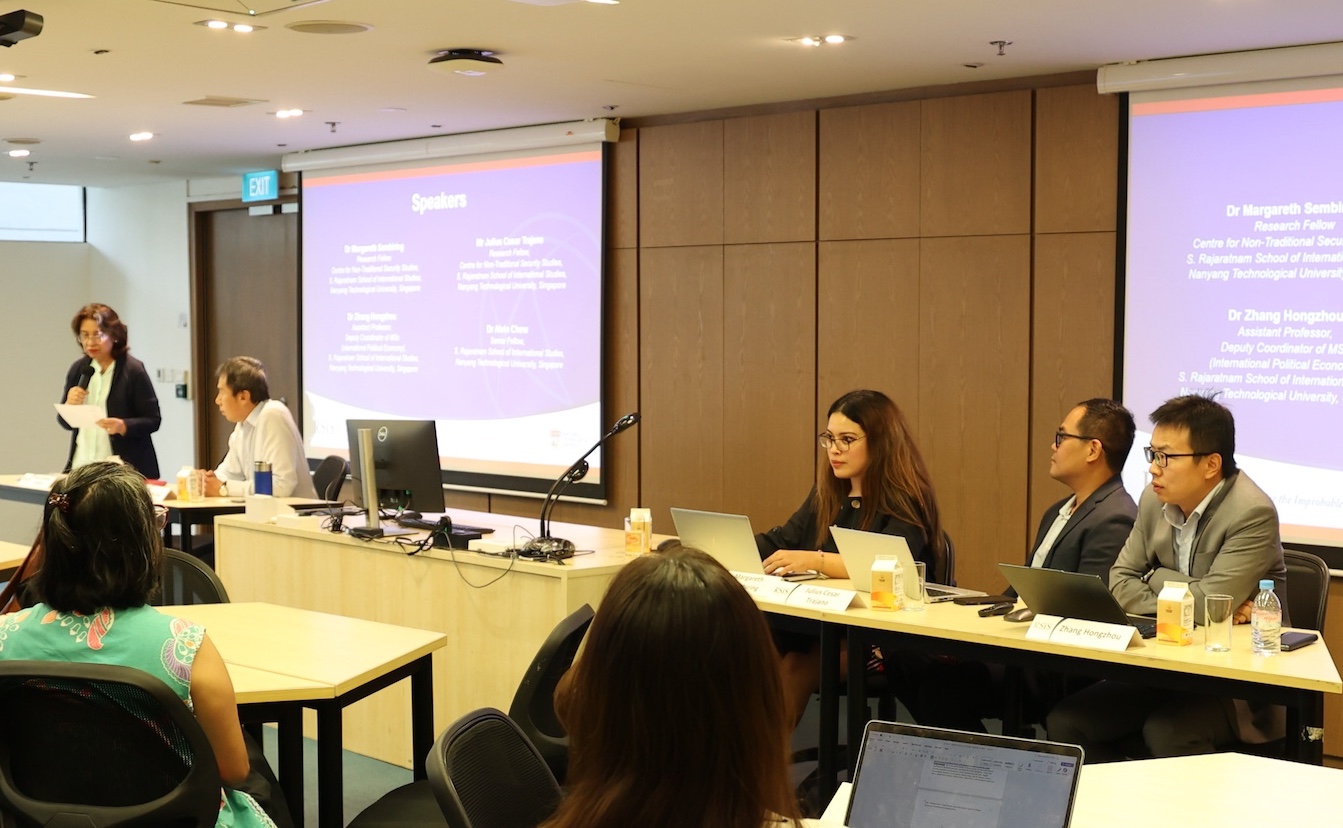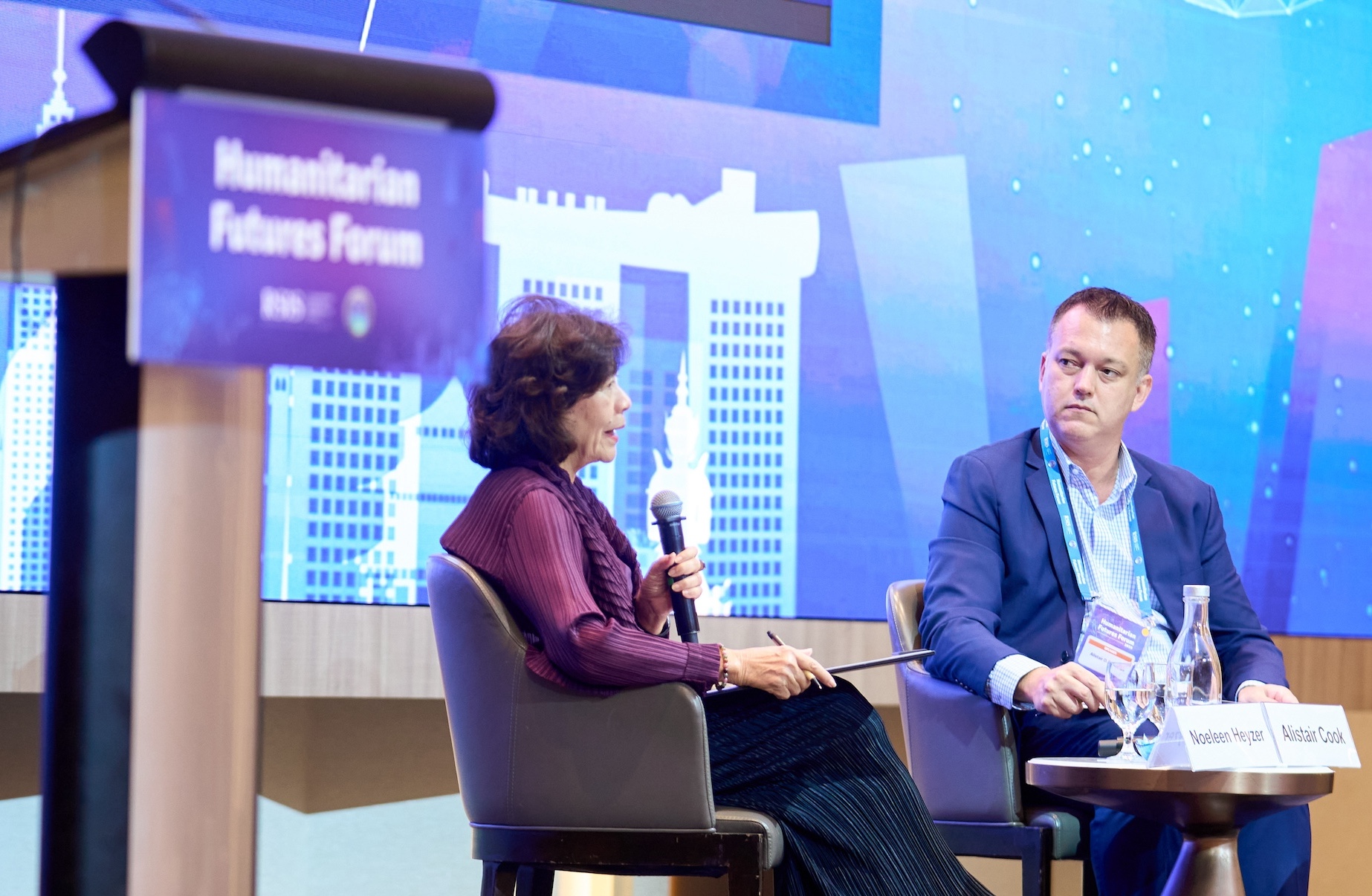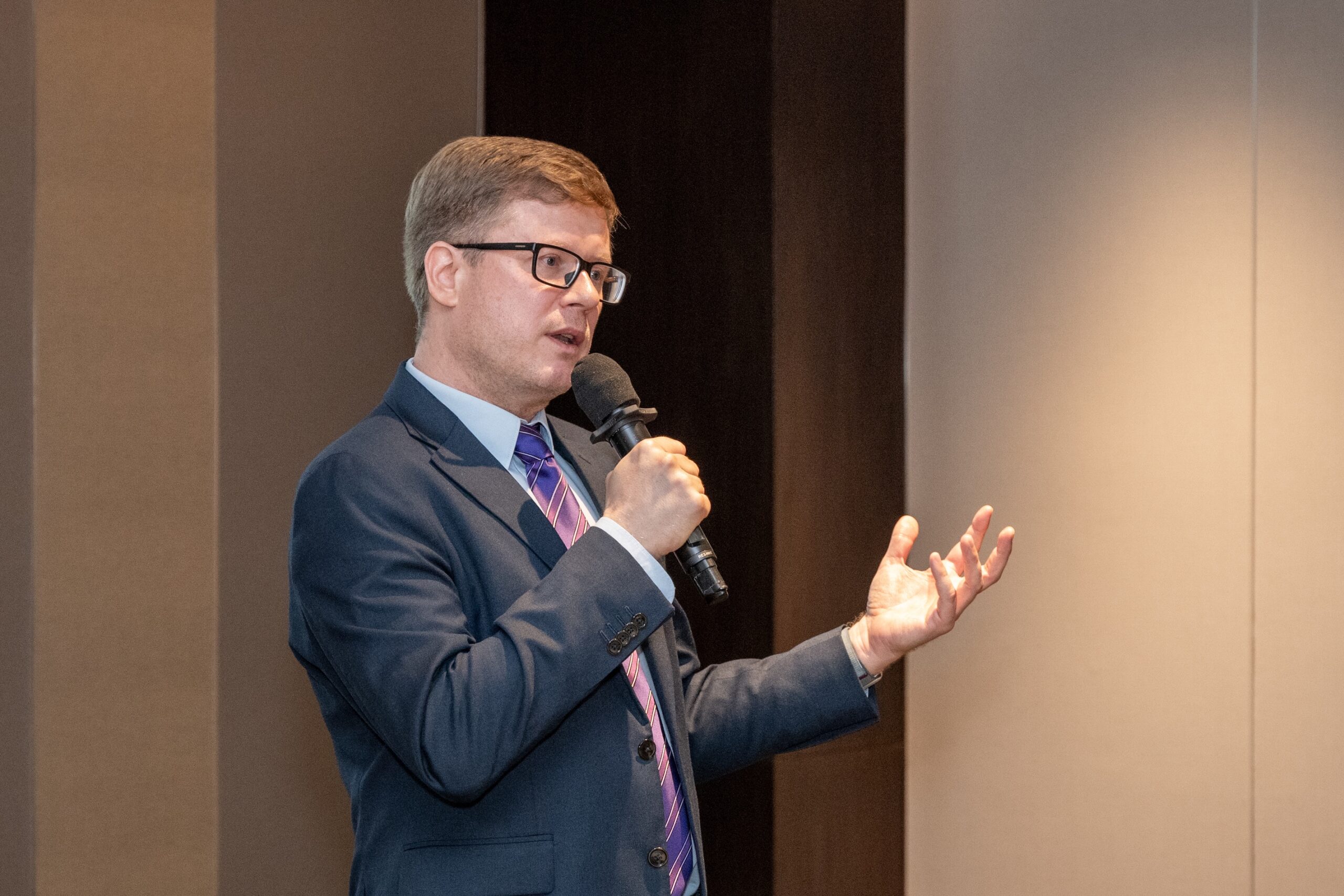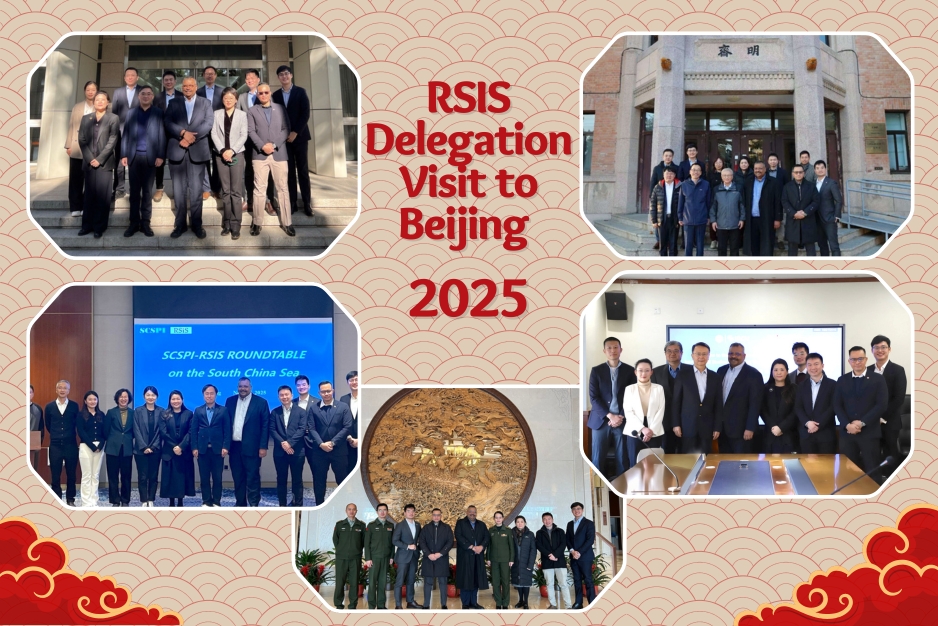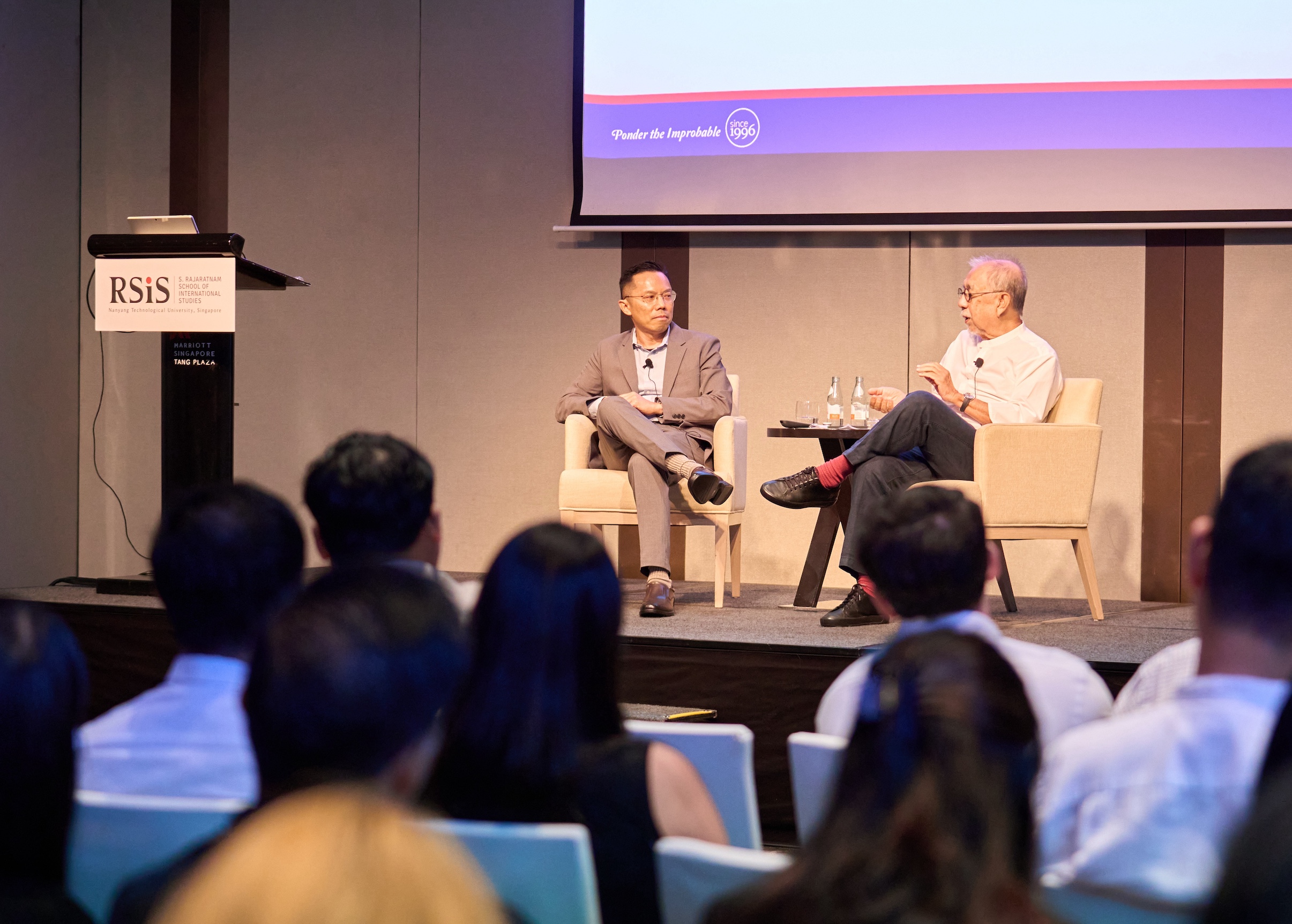
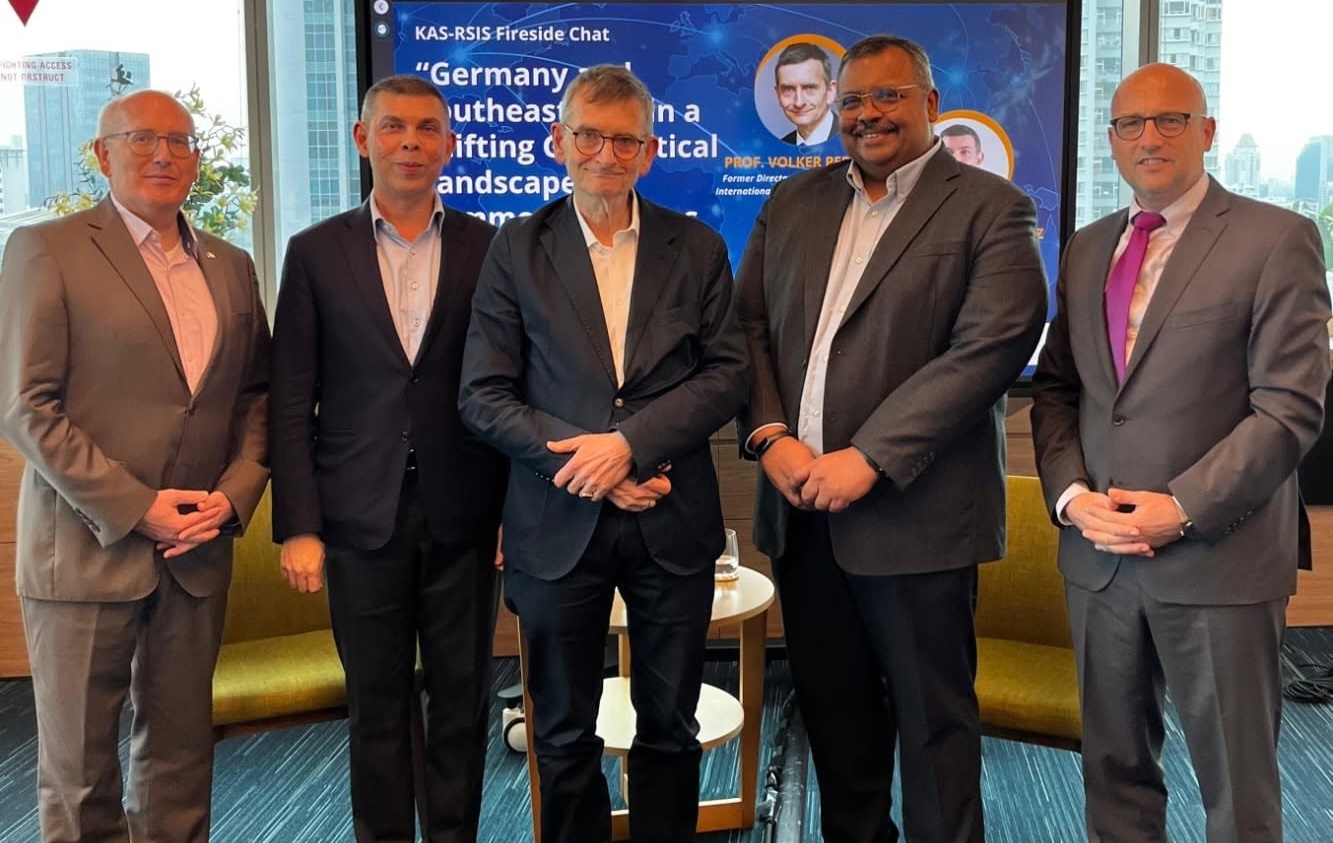
Together with the Konrad Adenauer Stiftung (KAS), RSIS hosted a fireside chat on 20 June 2025 for Professor Volker Perthes, former Director of the German Institute for International and Security Affairs (Stiftung Wissenschaft und Politik, SWP) and a leading German political thinker on foreign policy and Middle East affairs.
The event opened with remarks from Mr Andreas Klein, Director Regional Programme Political Dialogue Asia at KAS, and Professor Kumar Ramakrishna, Dean of RSIS. Mr Christopher Hallier, Minister-Counsellor of the German Embassy, capped the opening by noting the important occasion of the 60th anniversary of Singapore-German relations this year. Mr Warren Fernandez, Senior Fellow and Head of the National Security Studies Programme, moderated the session.
Professor Perthes shared valuable insights about Germany’s position in today’s rapidly-changing global landscape. He emphasised that while international institutions and systems were designed to ensure stability, these truisms were increasingly undermined by shifting power dynamics. With competition rising in a multipolar world, peace was not always guaranteed. Even with alliances and partnerships, Professor Perthes challenged the commonly held belief that interdependence ensured permanence. Instead, he noted that any geopolitical shock now had the potential to affect all connected states, directly or indirectly.
Professor Perthes also highlighted that populism had become a worldwide phenomenon, citing Brexit and developments in the US as examples of how domestic politics influenced international relations. In the multipolar world, powers like China can be a partner and a competitor at the same time. Germany and the EU, to remain relevant in changing times, must adapt accordingly while keeping a sense of community and legitimacy. He noted that countries in the Global South often felt the pressure to choose sides but may also benefit from the system’s diversity.
The session concluded with a Q&A with questions ranging from Professor Perthes’ views on countries navigating “uncharted waters,” the impact of the US administration globally, and current conflicts such as the invasion of Ukraine by Russia and the war between Israel and Iran. Professor Perthes ended the session offering his views on sustained cooperation and informed perspectives that were needed to manage global uncertainty.




